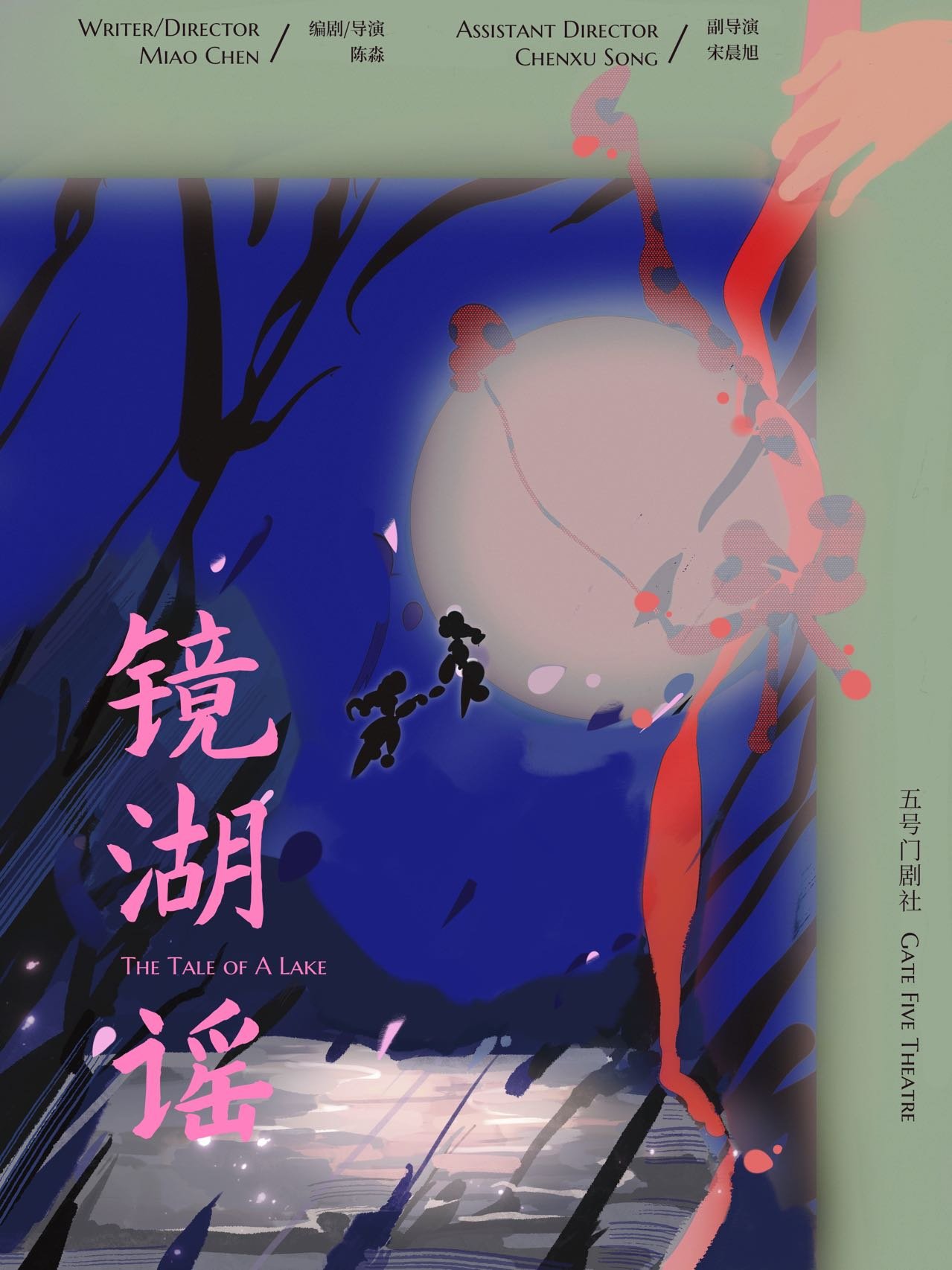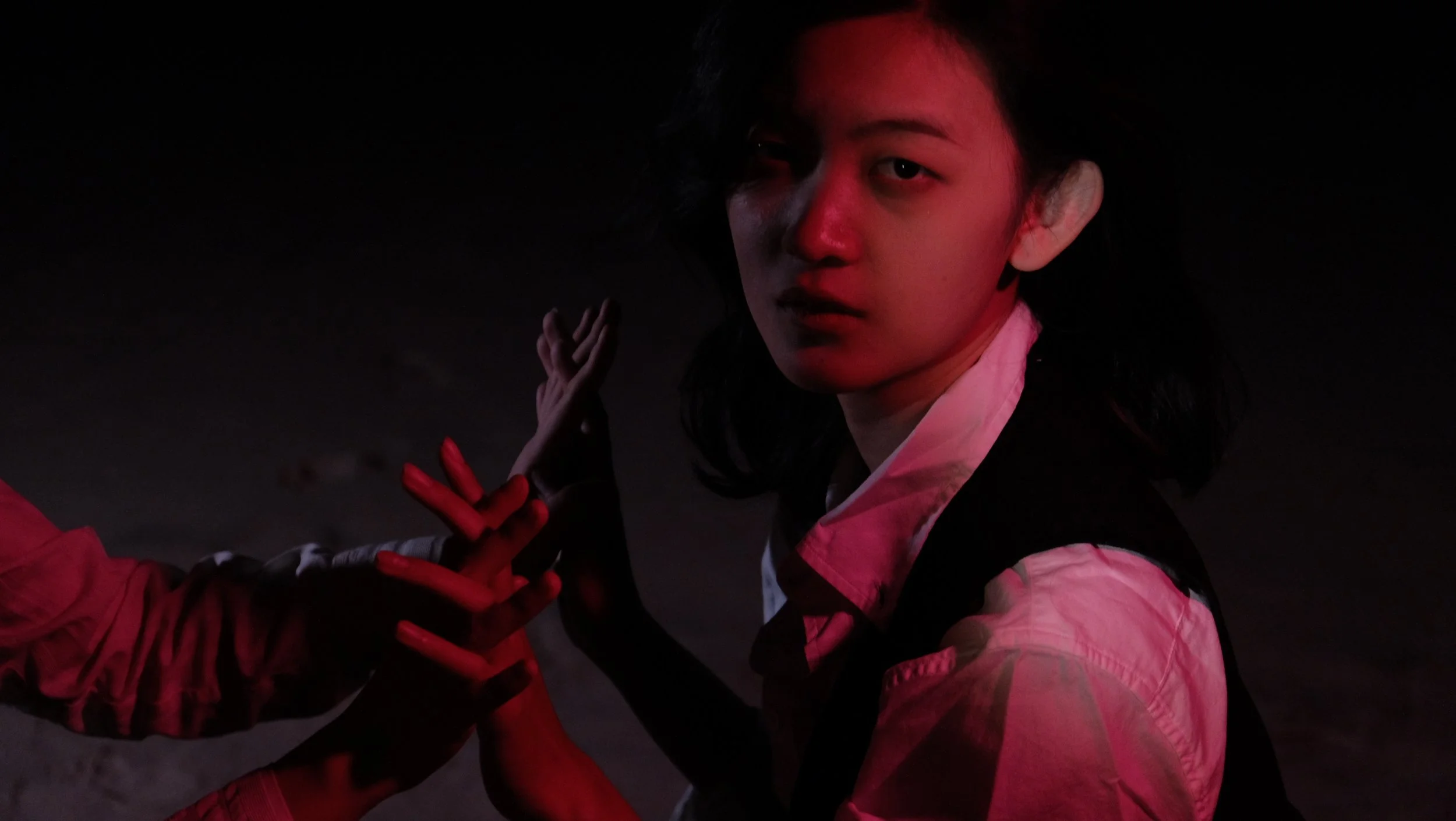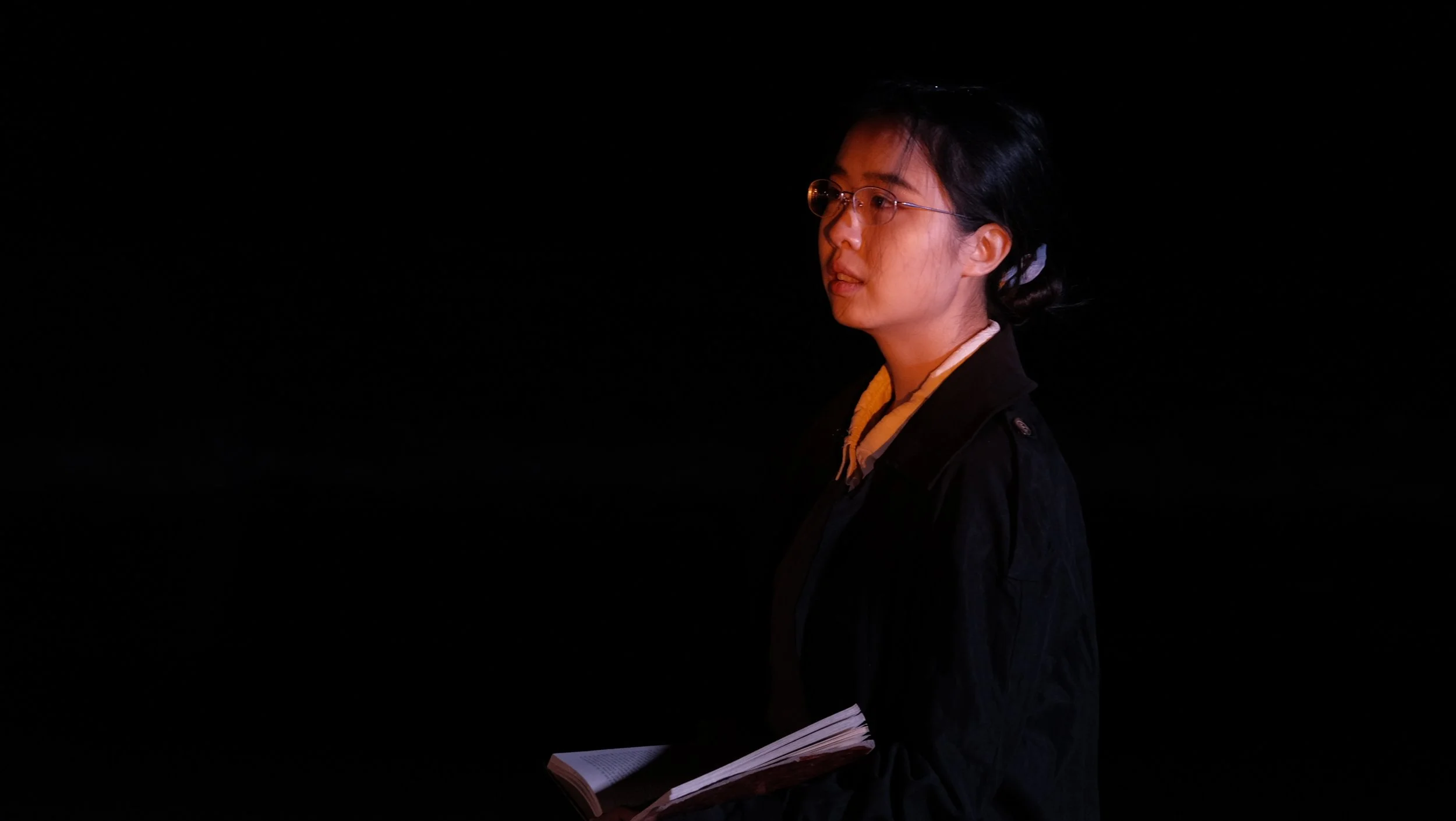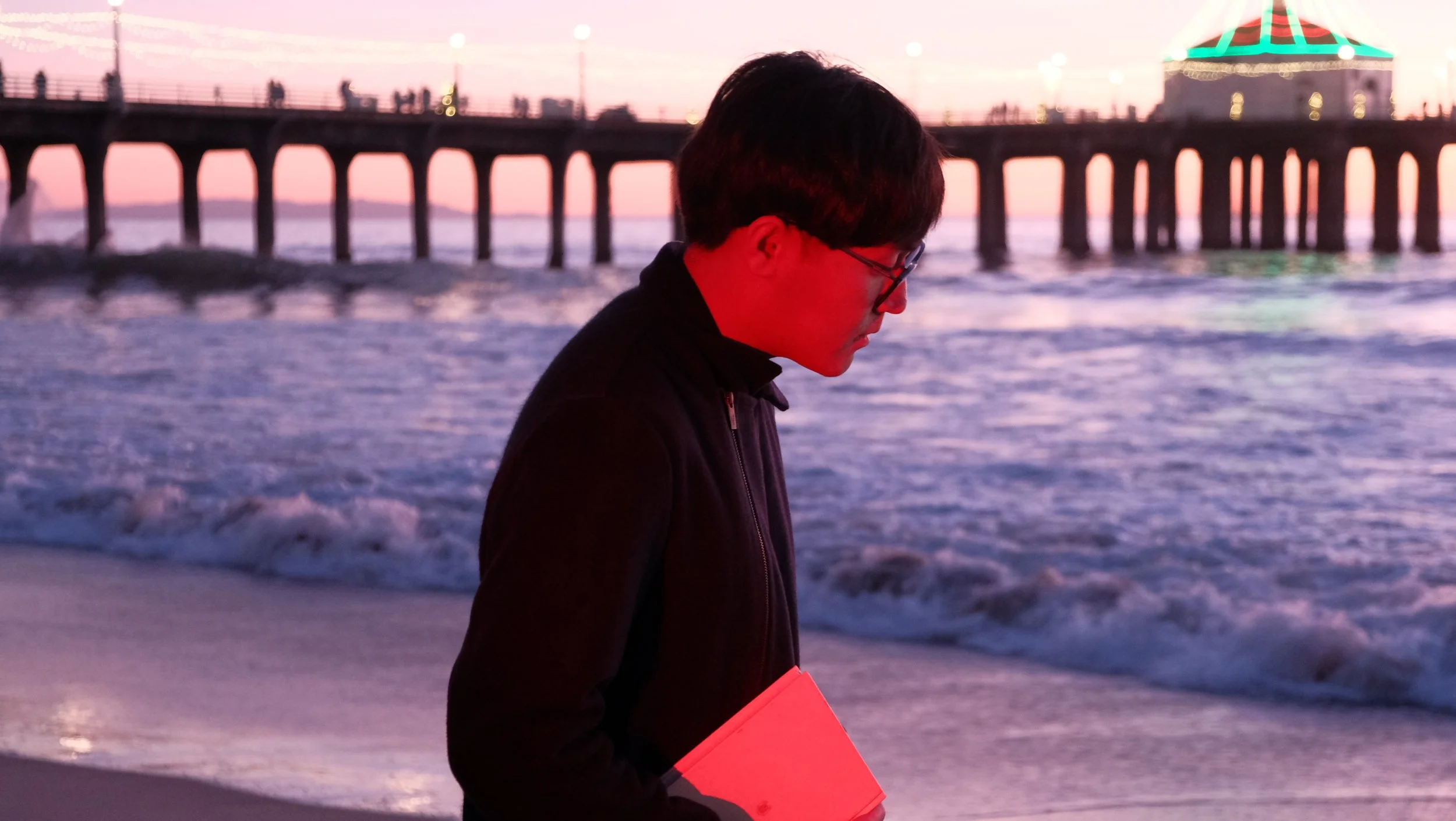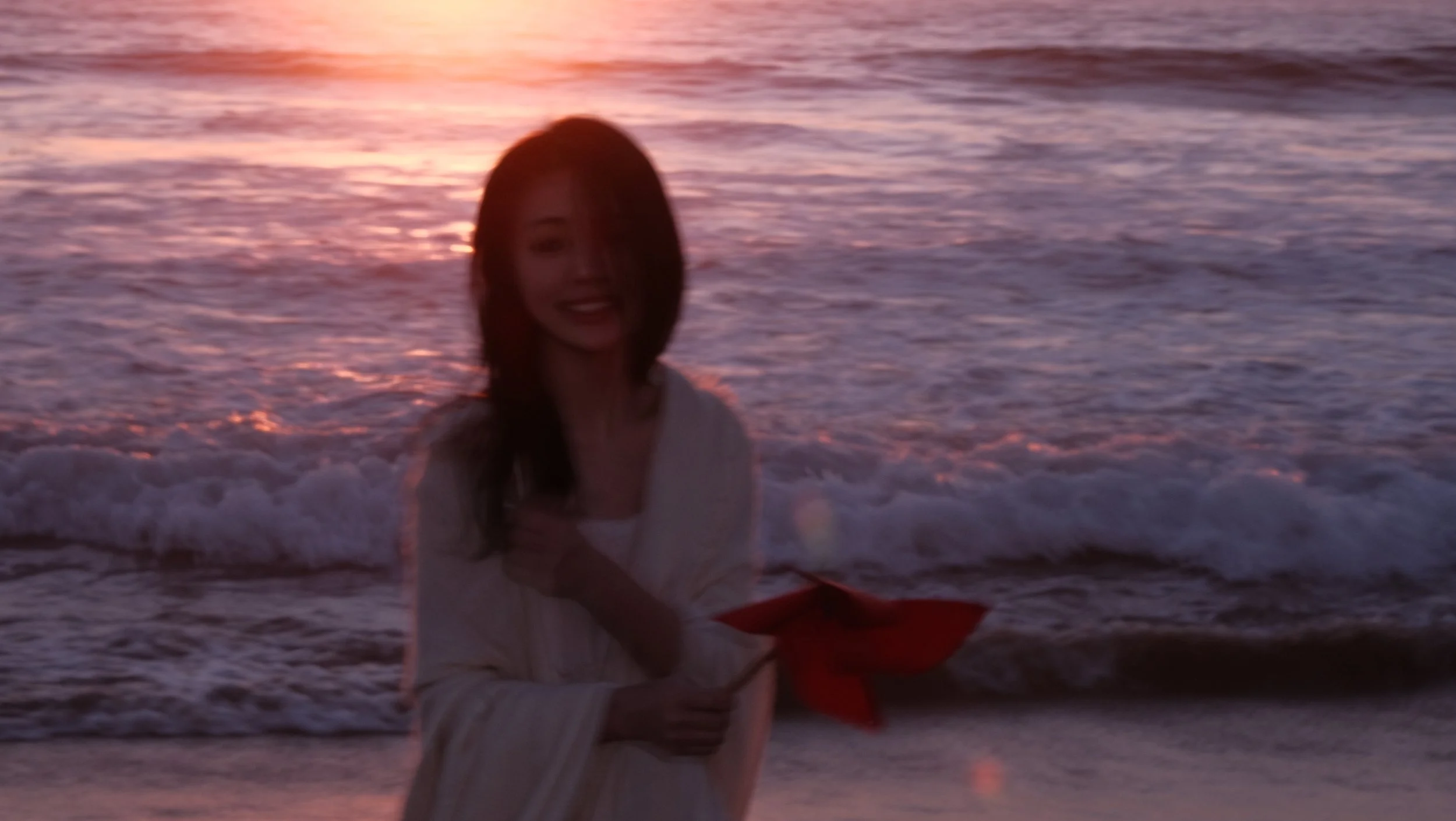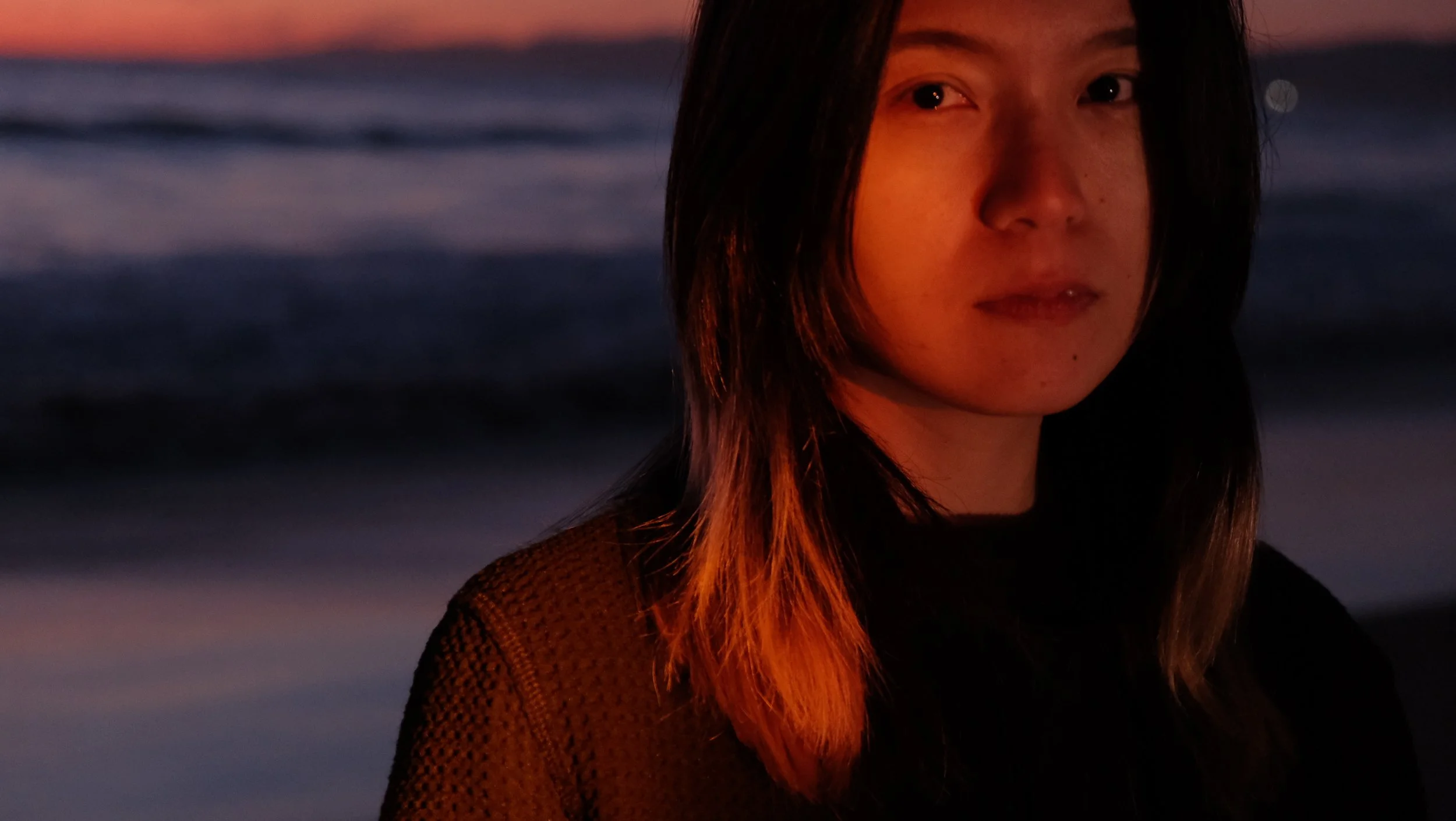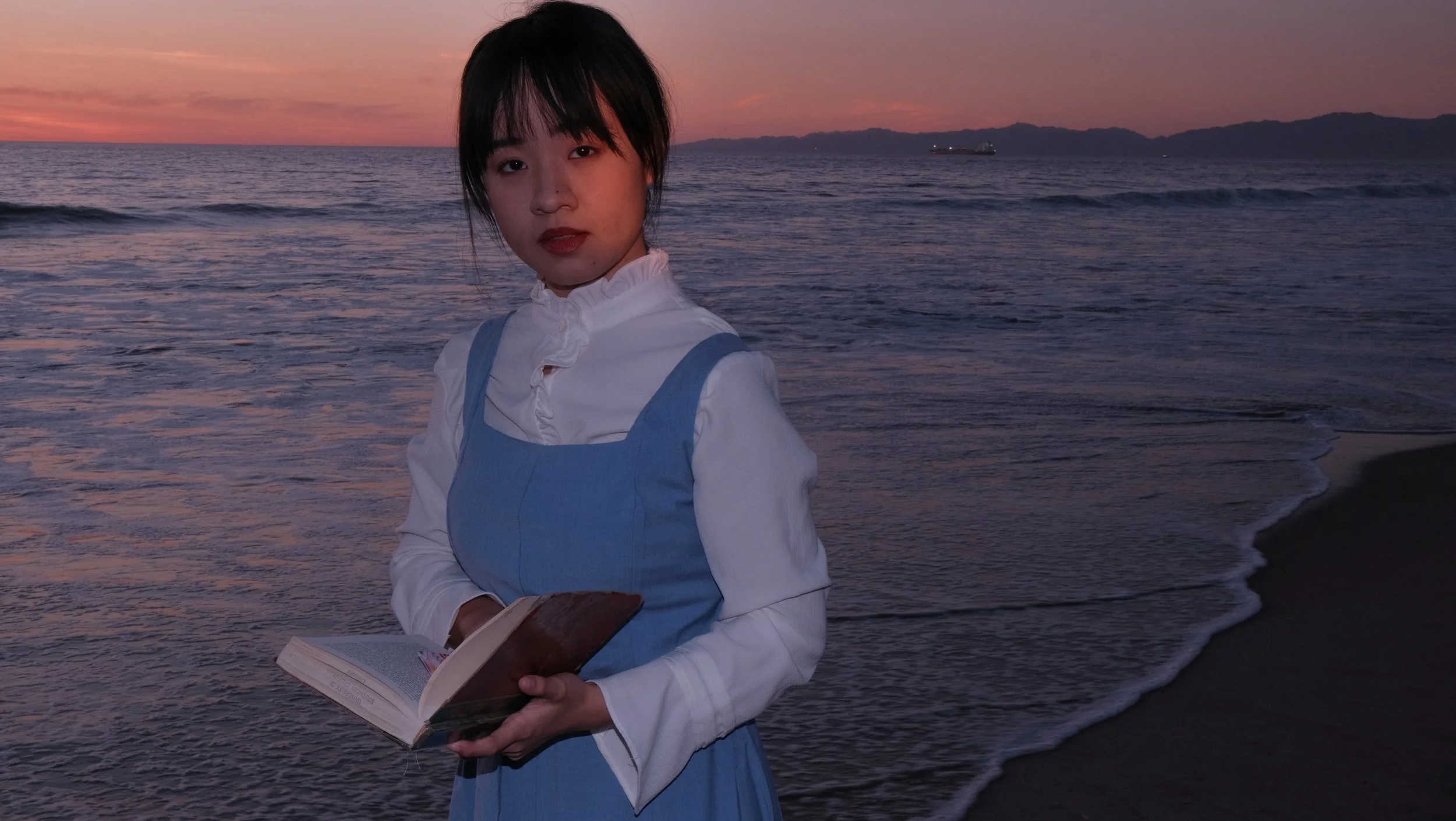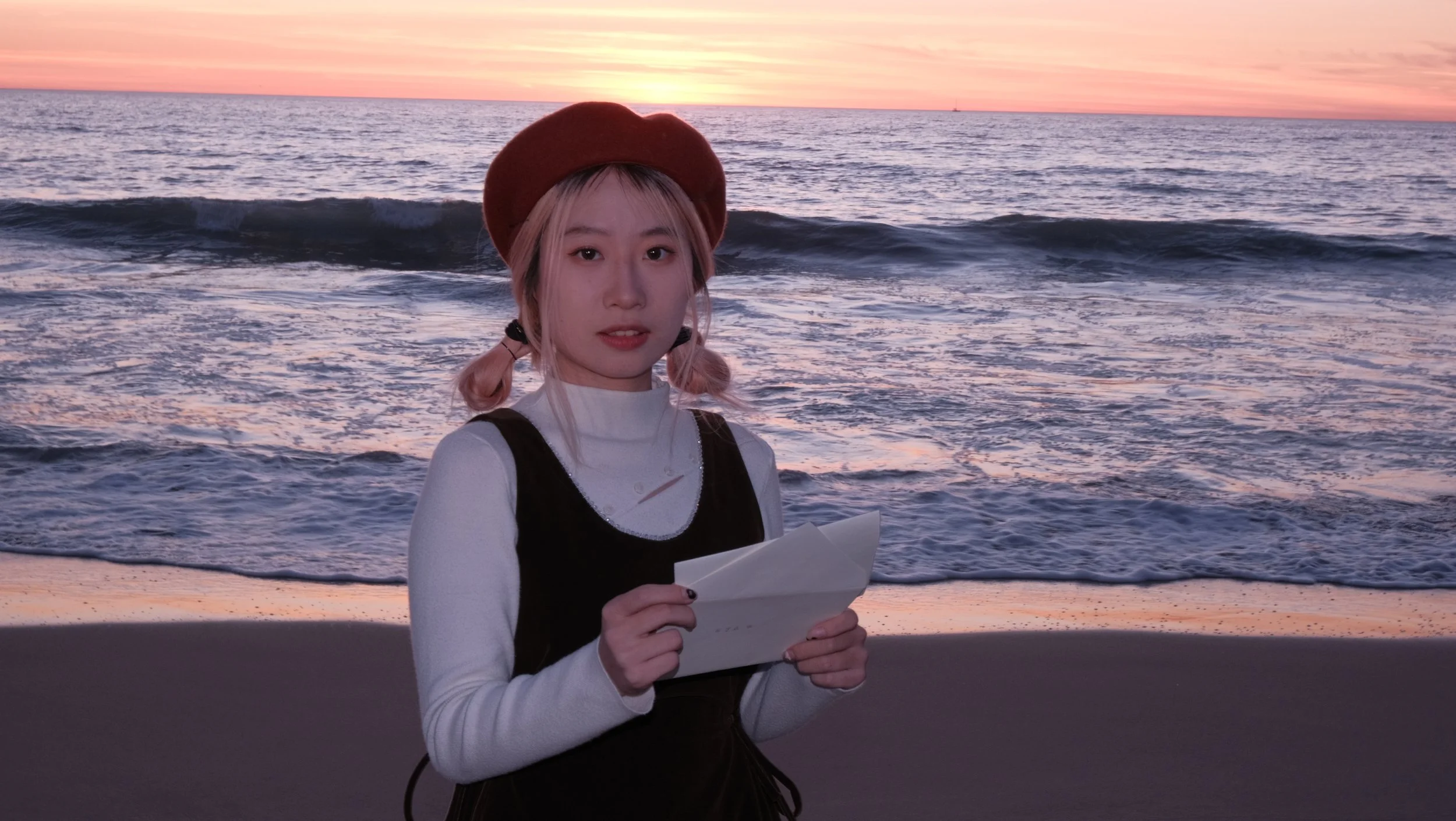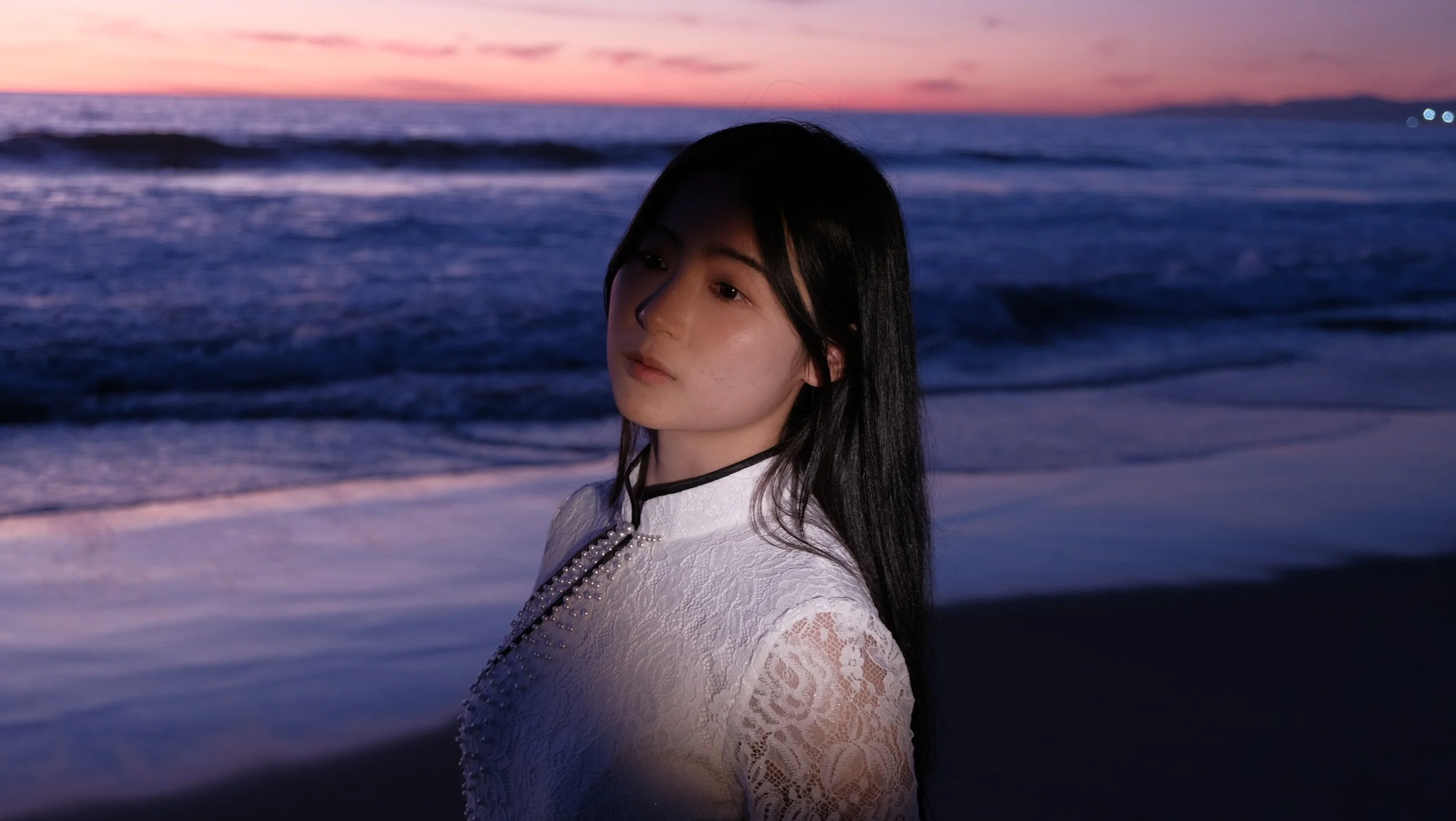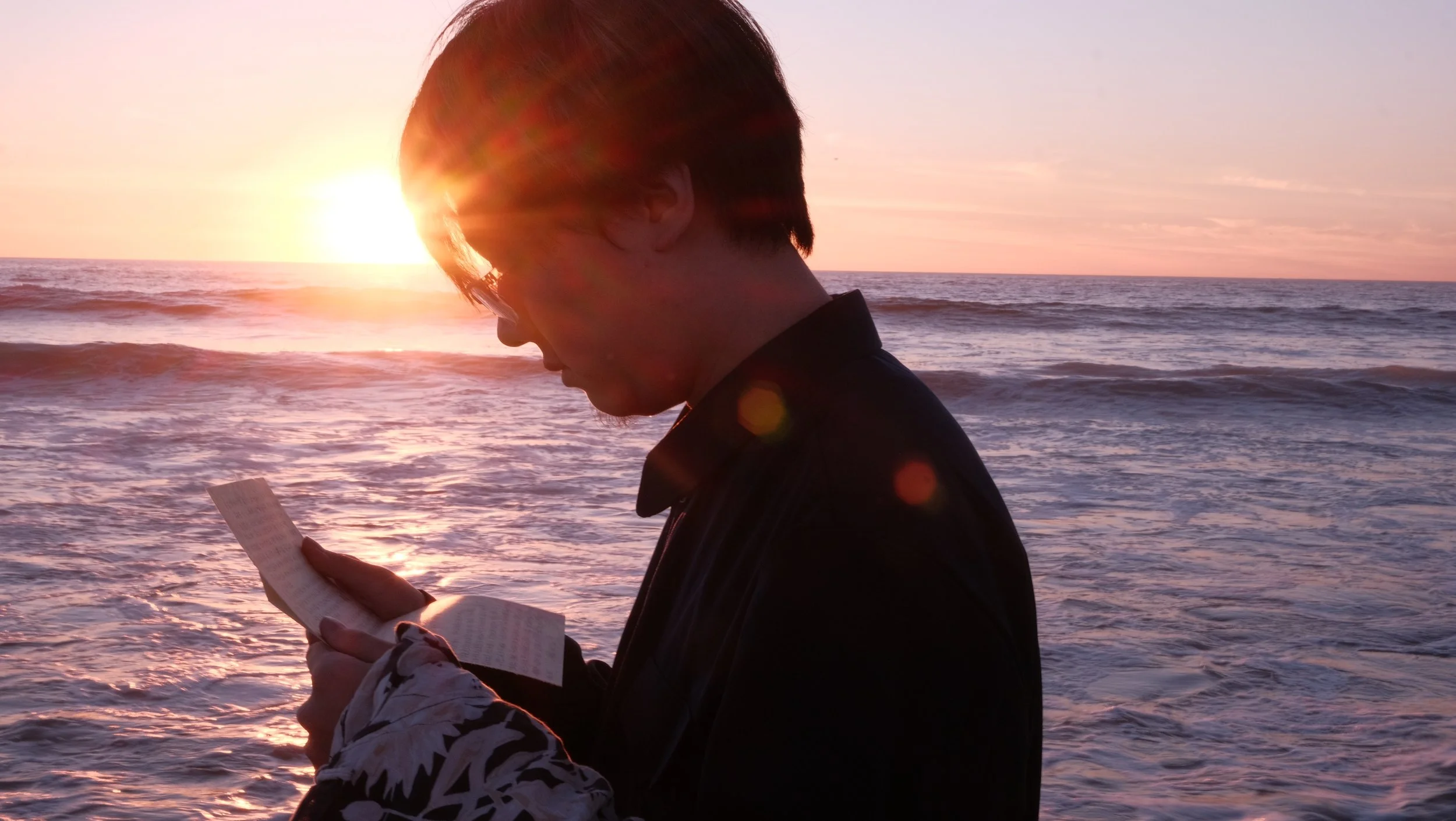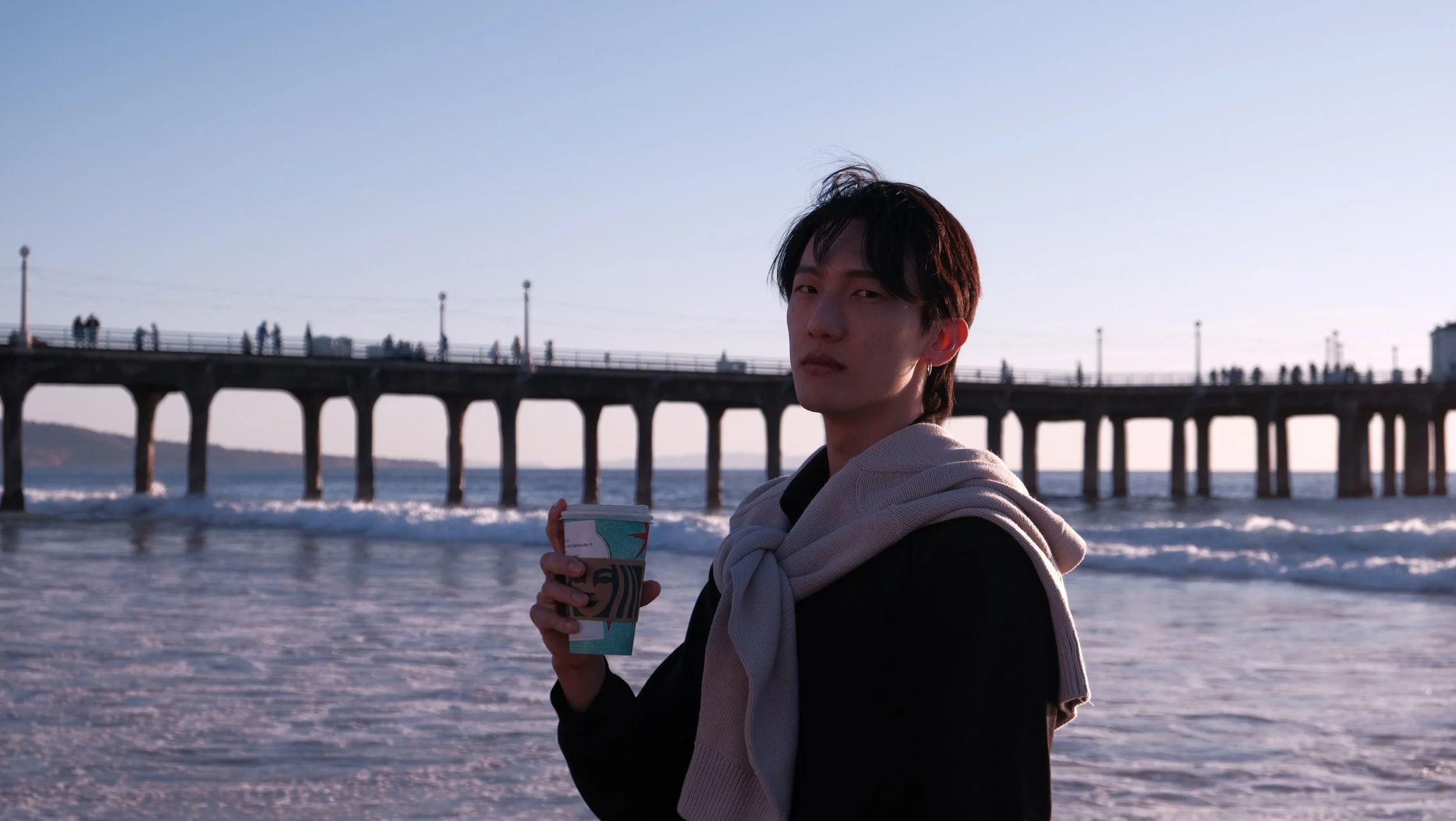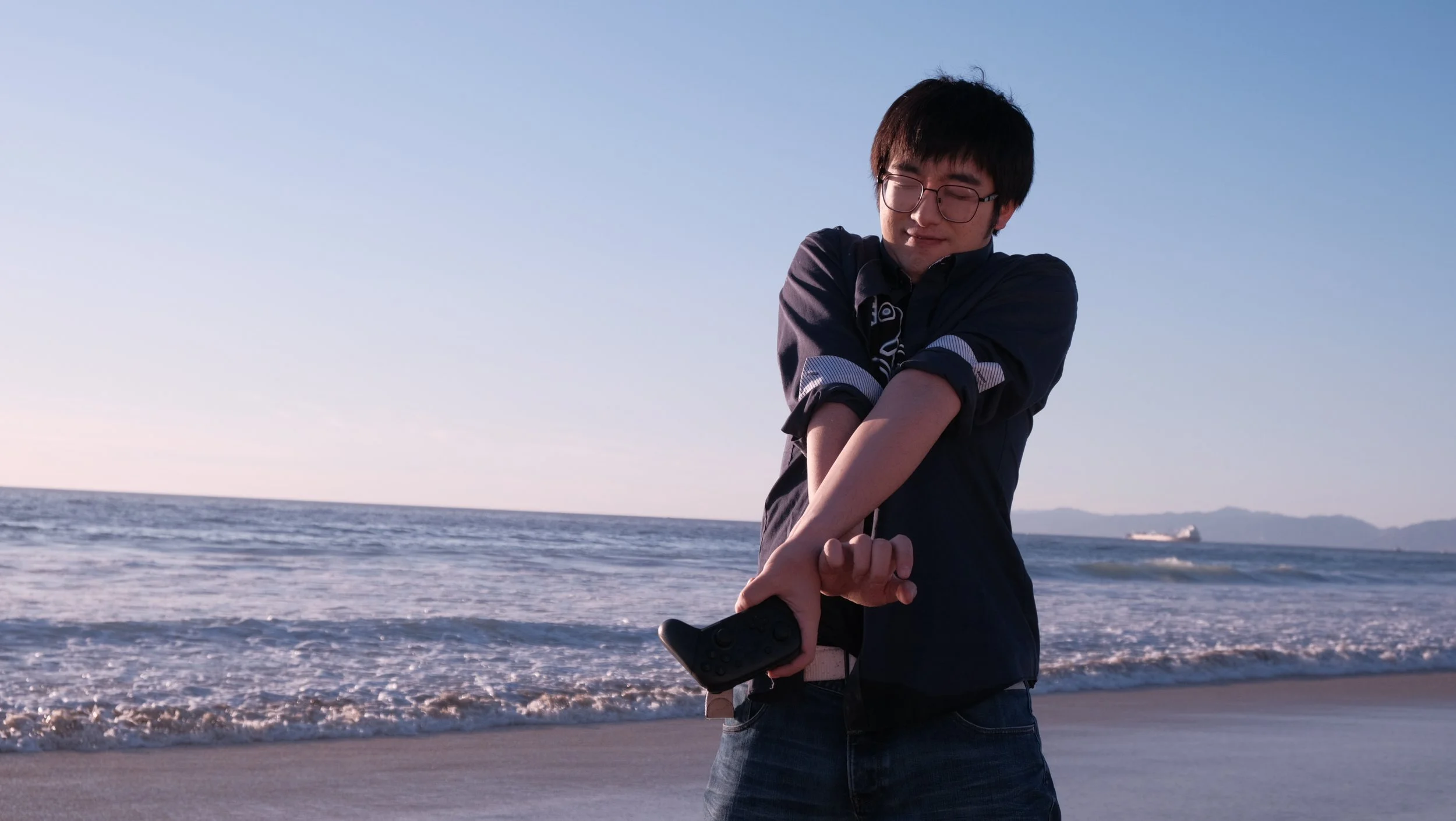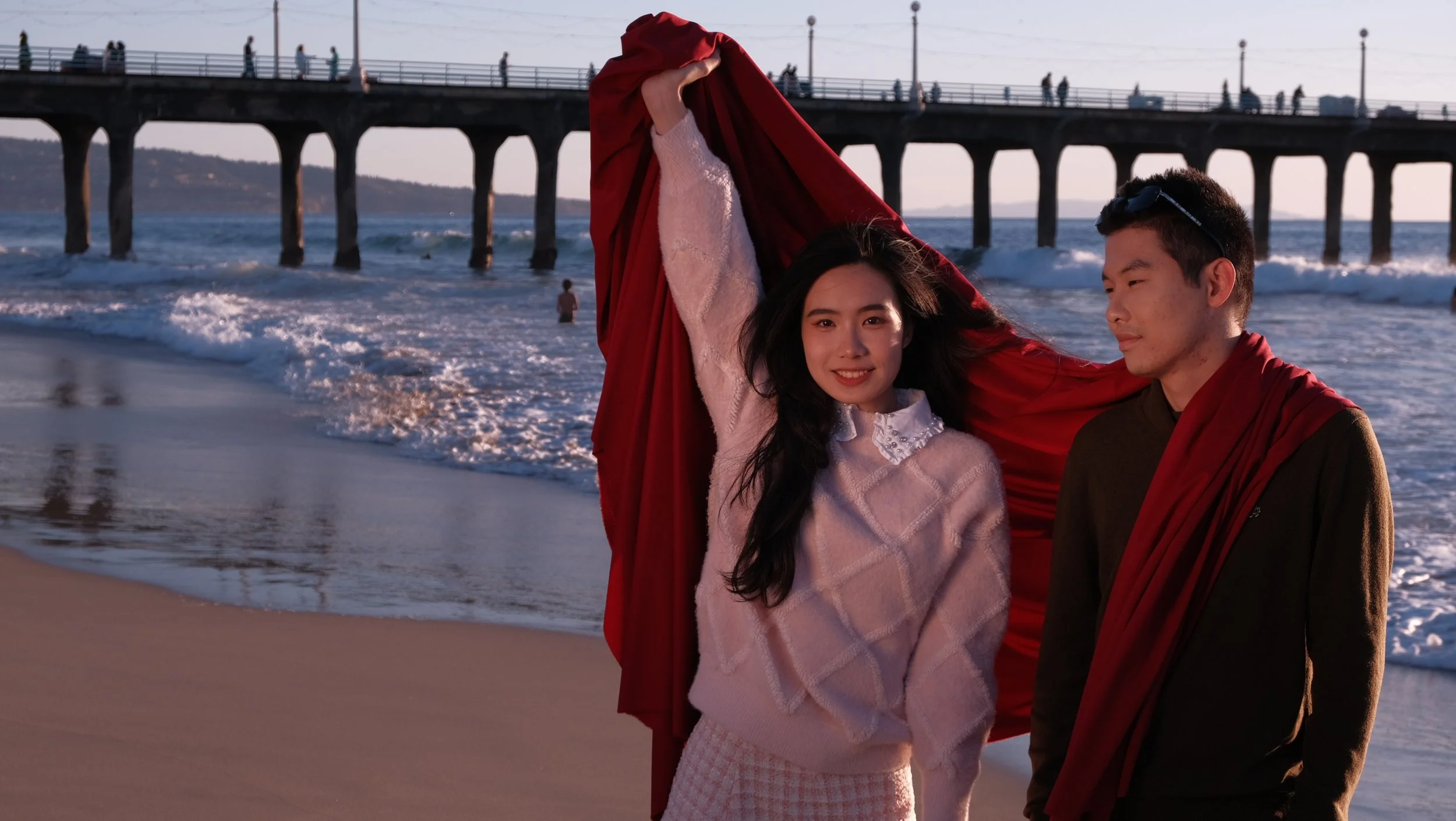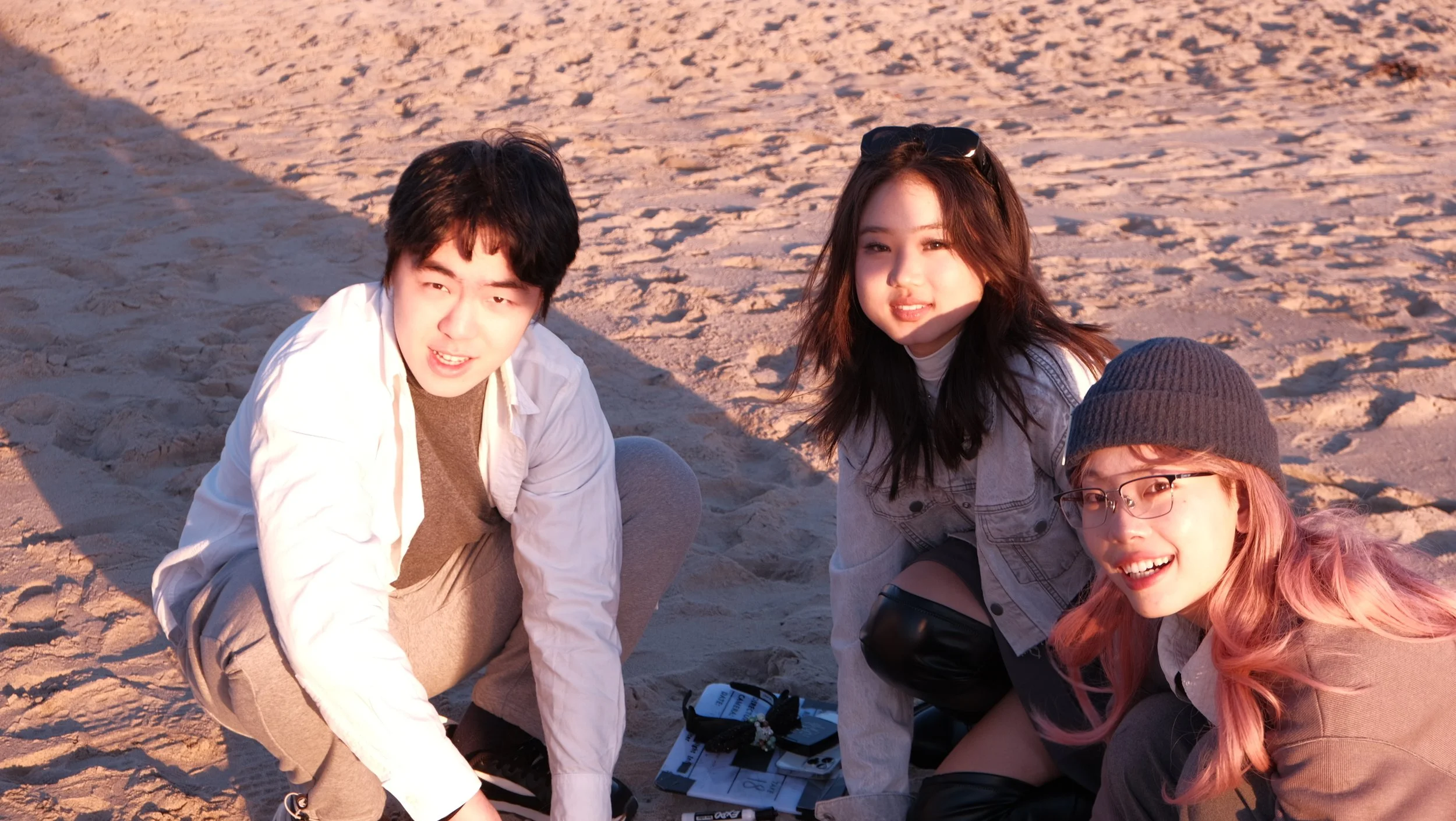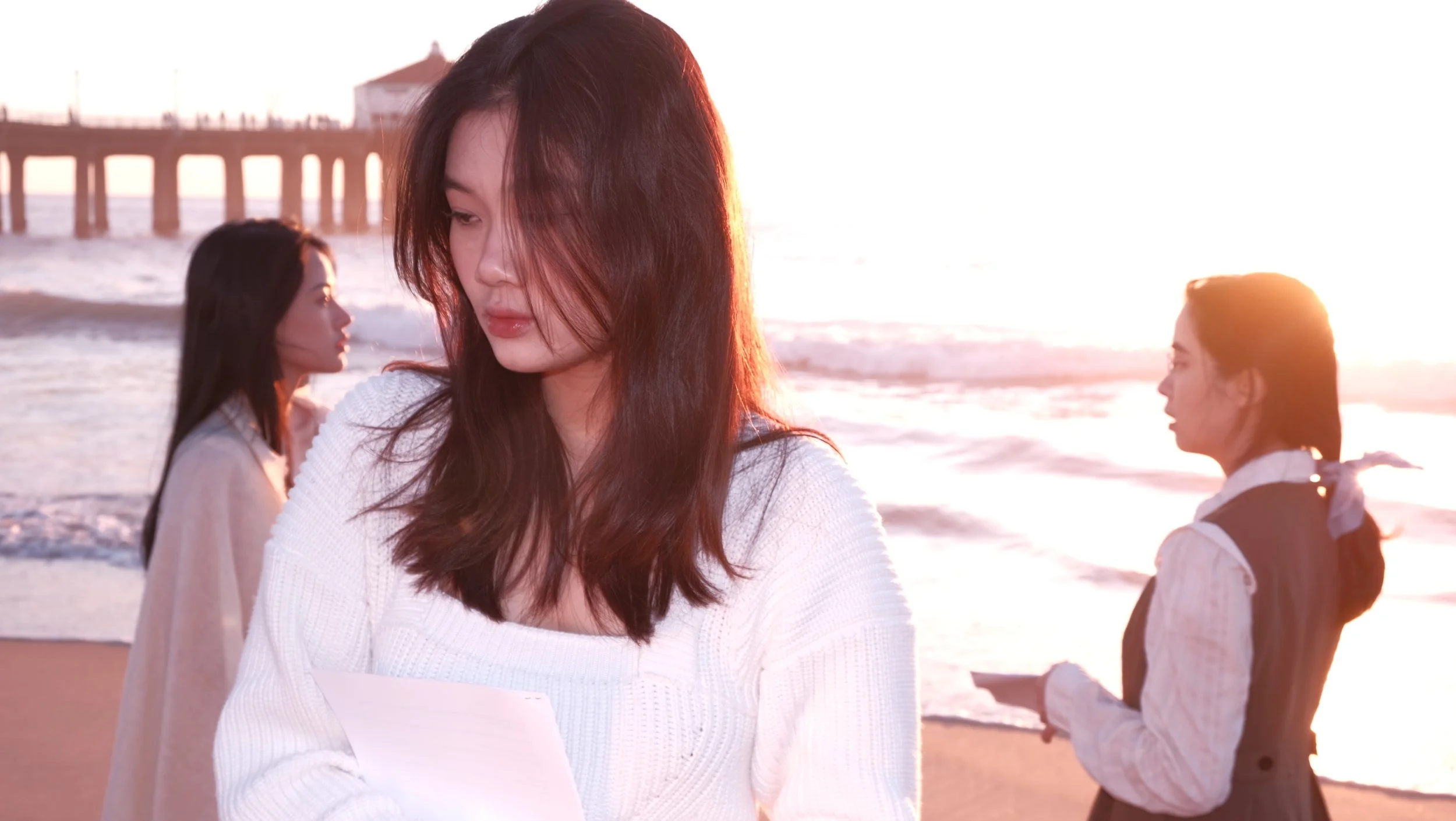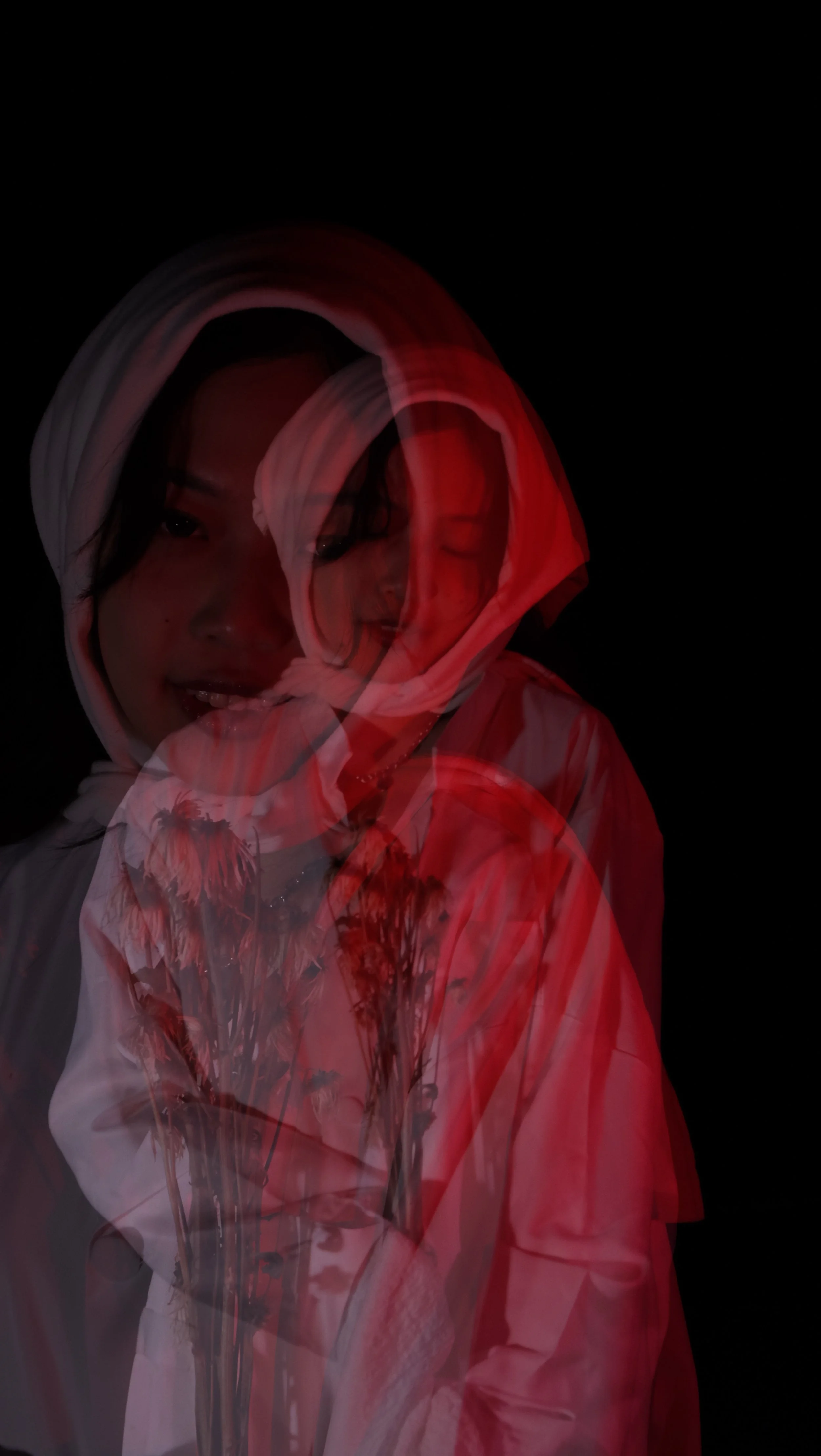The tale of a lake 镜湖谣
Synopsis
NAN’s parents and her teacher PROF YU teach at the same university. Nan’s mother died of a mental issue. Accidentally, Nan witnesses her father and Prof Yu get together near an isolated lake. Nan therefore doubts that her father and her teacher have an affair, even her mother’s death is due to this. Although Prof Yu has actually taken up her mother’s role since childhood, Nan still decides to exact revenge on Prof Yu.
Nan gets enrolled in Prof Yu’s demanding literature course, bands together classmates who are dissatisfied with Prof Yu, and accuses Prof Yu of performing “cult” in class — her frequent PTSD symptoms makes the rumor quite believable.
Faced with overwhelming pressure caused by the rumor, the School of Literature calls together Nan’s student company, Nan’s father and Prof Yu, and announces that a letter of dismissal must be signed by either side who claims responsible for the incident. Prof Yu is about to sign the letter without self-defense when Nan’s father reveals a secret that has been kept for decades...
The Tale of a Lake (2022)
Written-directed by Miao Chen
Assistant Director: Chenxu Song
Full-length play history/family/thriller
Showcased in USC Gate Five Theatre 2022 Fall Performance Season
Writer-Director’s Statement
In the summer of 2019 in Beijing, I watched a screening of The Crucible — theatre live presented by the Old Vic Theatre. This American classic on witch-hunting inspired my thoughts on how the story might develop in a contemporary Chinese context. The summer ended and I entered my senior year in September. As required by our professor, I was writing a reflection on my undergraduate school life. At the intervals of writing, inspiration from The Crucible grew into an independent new story — The Tale of A Lake. I still remember how I shimmered out of excitement in the closing darkness of the empty school hallways while holding the draft of my story outline.
The story is set on a Chinese university campus. Reflection on “the knowledge” is key to the storytelling. Knowledge is bright. In those winter days with chilly north wind blowing, my professors, who would lecture “theories” in class, shined as Apollo. THEORY. DECISION. REFLECTION. Following their instructions, you would feel like seeing an access to the Utopia. Knowledge is hard, too: I could easily fall asleep in classes on pre-modern culture, for example. Divided by talent and experience, as students, and human-being, we were constantly reminded of our limits. GPA, recommendation for graduate admission, graduate school entrance examination... students would go to classrooms before 8 am to take a better seat; they would check their curriculum with peer students to make sure they wouldn’t enroll in any tough courses. Hardly is there a step towards knowledge learning that is simple and lighthearted. Knowledge is even cruel. Scholars who labor in the garden of knowledge (in a context of Chinese academia) always seem to be loaded with a heavy conviction, no matter how “chill” they pretend to be: a traditional metaphor compares teachers with candles that burn themselves out to give light; the Confucian orthodoxy, too, bounds the literati with the only mission of inheriting and promoting the legacy. This is very different from what I observe in American universities, where devotion to liberal arts seems to be a fulfillment of free will rather than “sacrifice”... yet when I think back on that archaic “conviction”, tears still wet my eyes.
I still remember a special winter night. On that day, my favorite course came to an end. Before our final class meeting, I stayed up for a whole night to finish my papers at a school cafe, a bizarre place lit with reddish lights. I headed for the class, gobbled down a meal, took a long nap, and got up again at dusk. The wind blew hard while I marched across the campus to collect my packages at the mail stacks. I was on my earphones. The music (now forbidden) that used to be analyzed in class echoed in my ears. My tears were streaming — all the way down beneath my scarf, and froze. Such kind of traumatized affect has remained in my body since then: the end of a critical studies class makes me sad. Even after I came to the sun-bleached California. Those moments were so bright; being in moments like that, I feel brightened, too. I hope to be that bright forever. This might be a wish for the knowledge to go on. How should knowledge be preserved and last, so as to liberate the humanity? Such a question has driven my storytelling.
Persona
第一代 Grandparents’ generation
噫嘻悲哉!
此秋声也,胡为而来哉?
Alas, what a shame!
Why does the sound of autumn come in such a sudden?
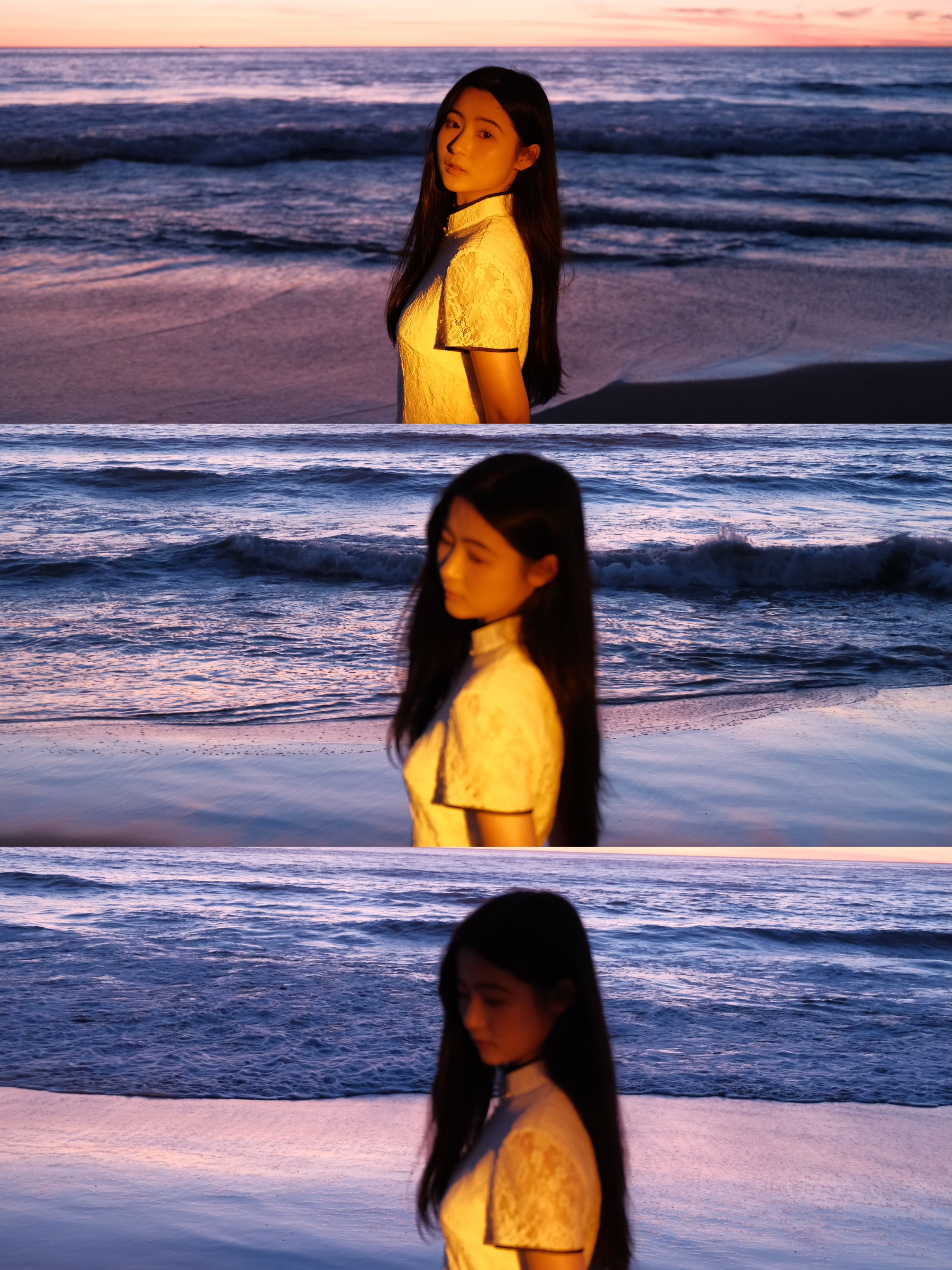


第二代 mother’s generation
当文学通向了觉察变化的历史,
才通向了真正的,人的解放。
When literature leads us to changing history,
people are then led to true liberation.

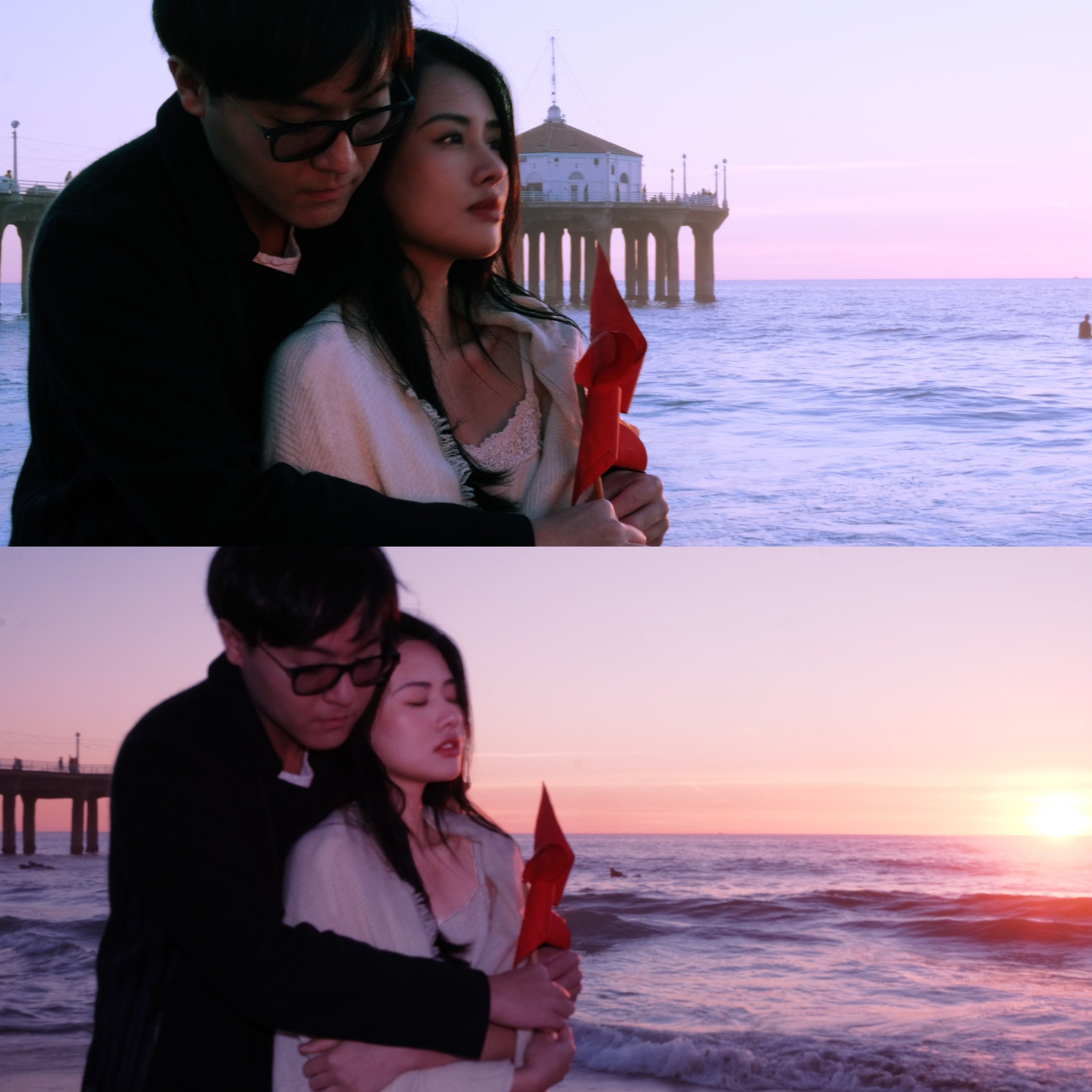
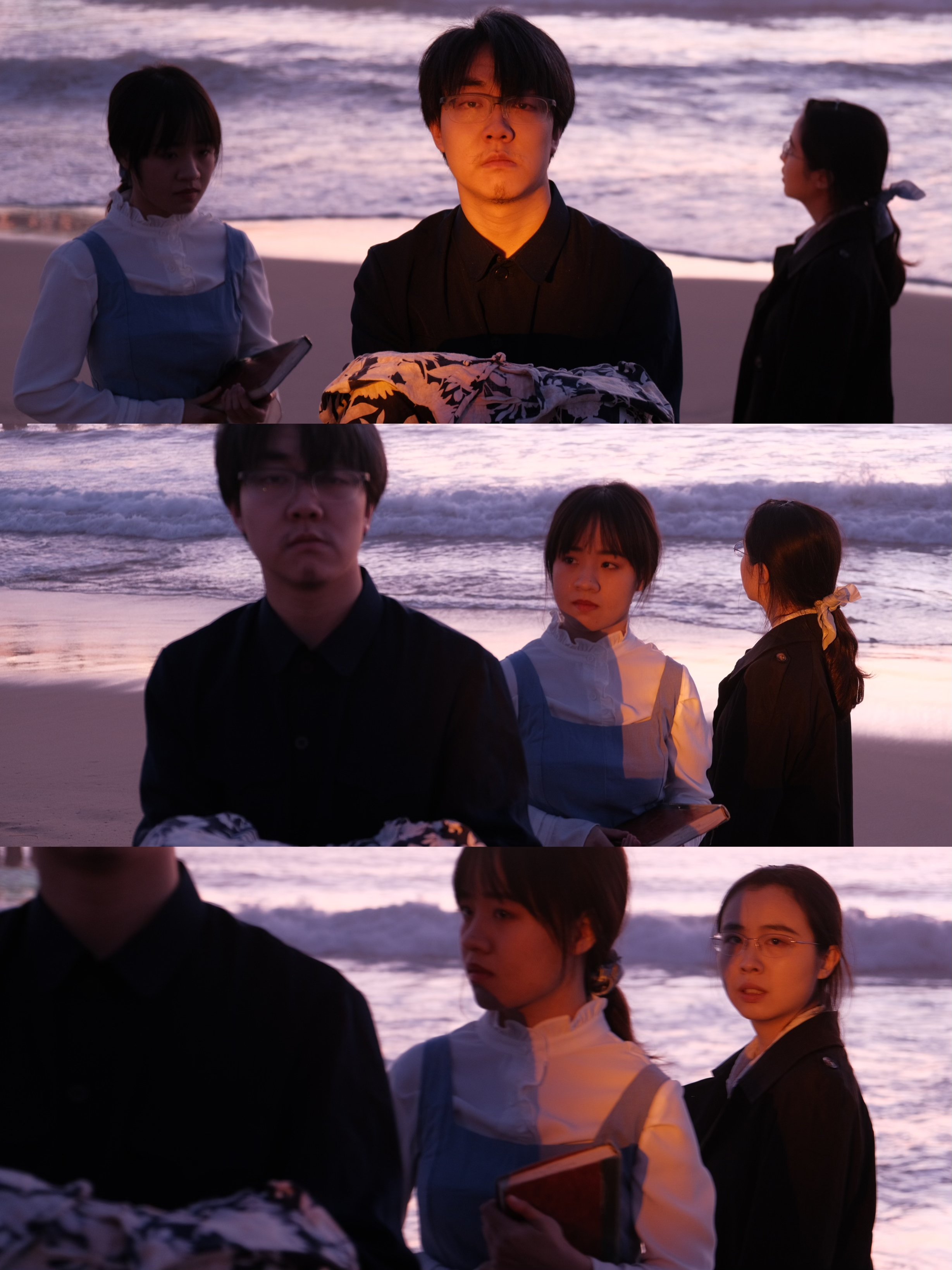

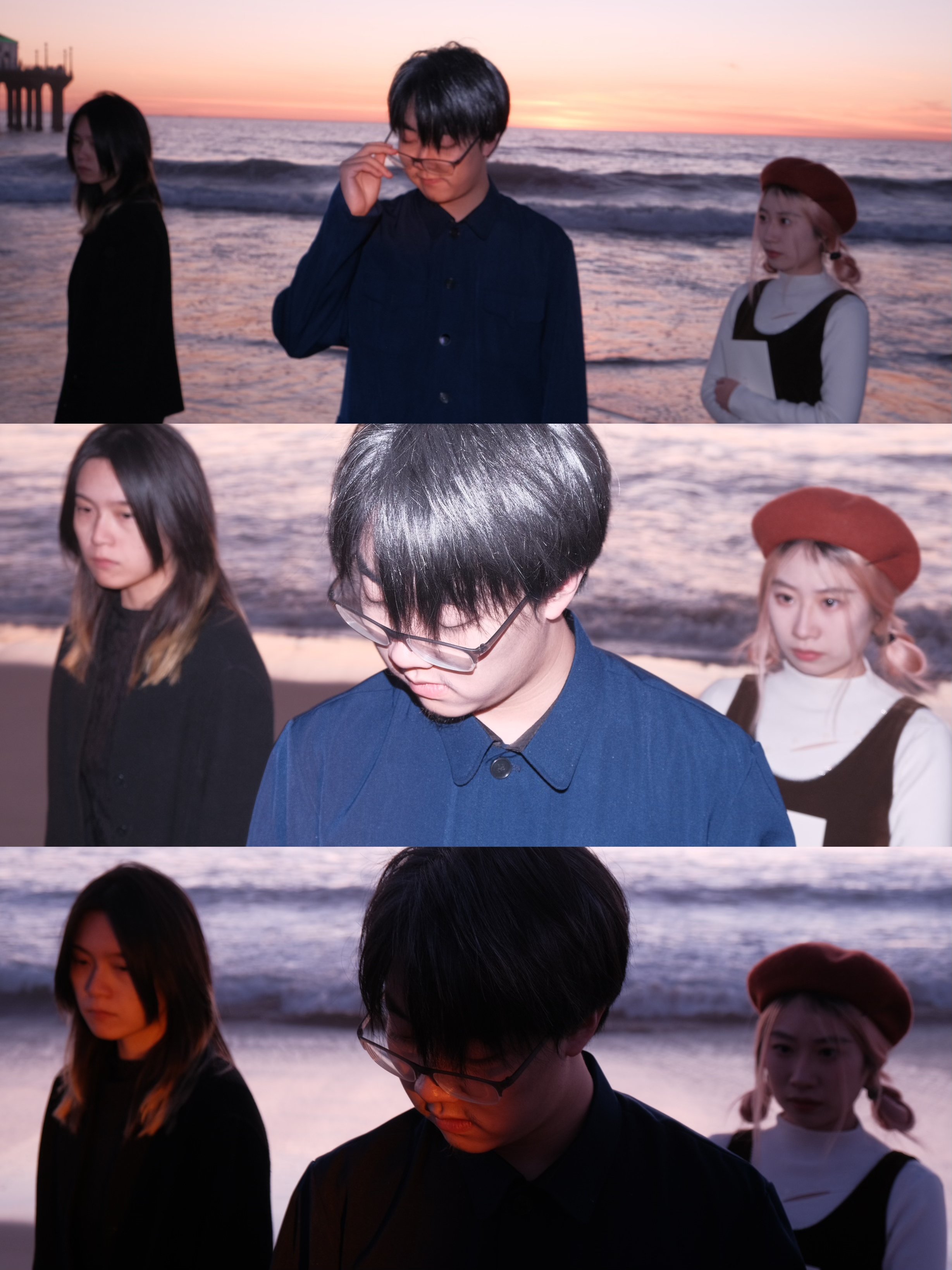




第三代 Daughter’s generation
如果知识是一种血脉,
那么,我诅咒它。
If knowledge runs in my veins,
then I curse it.
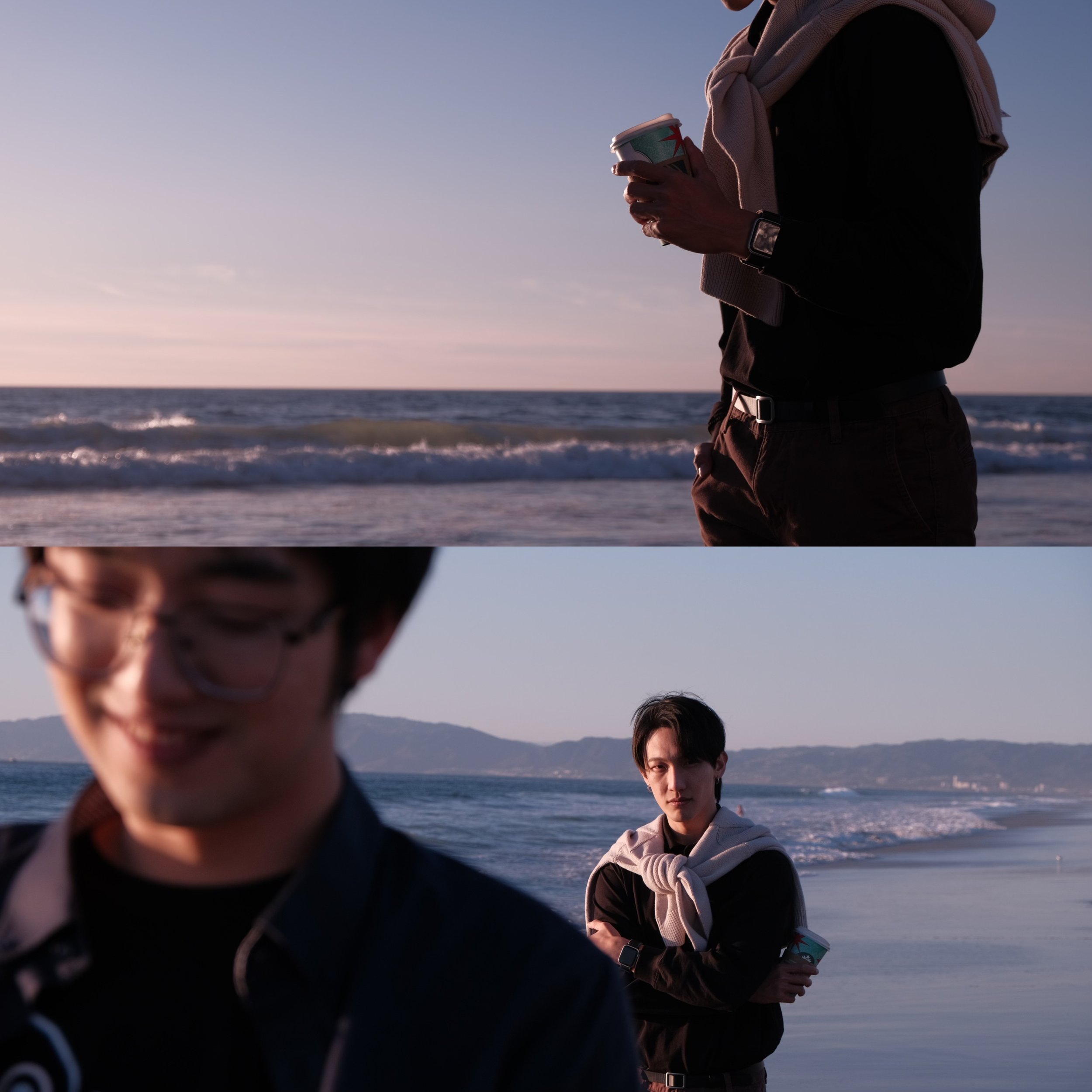




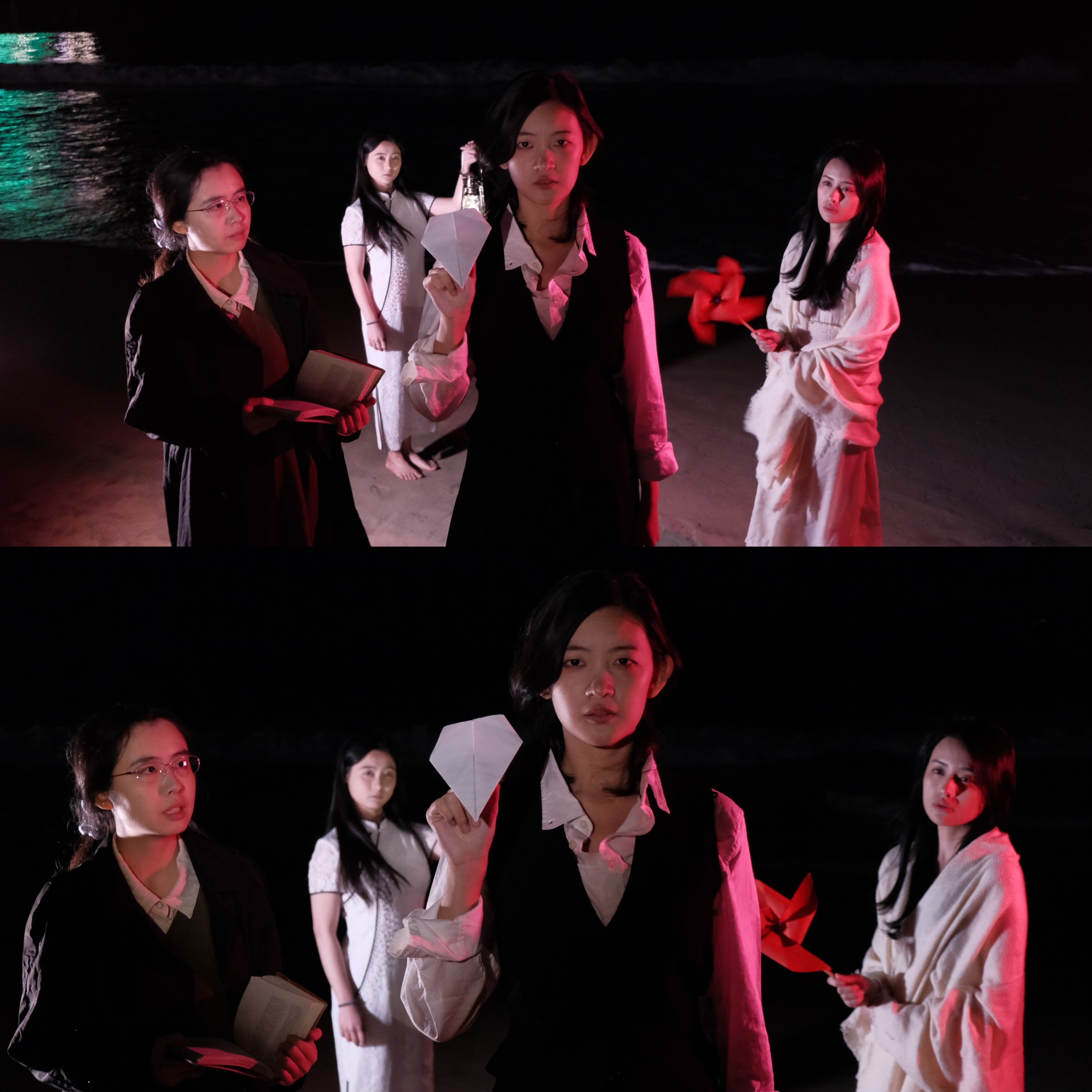


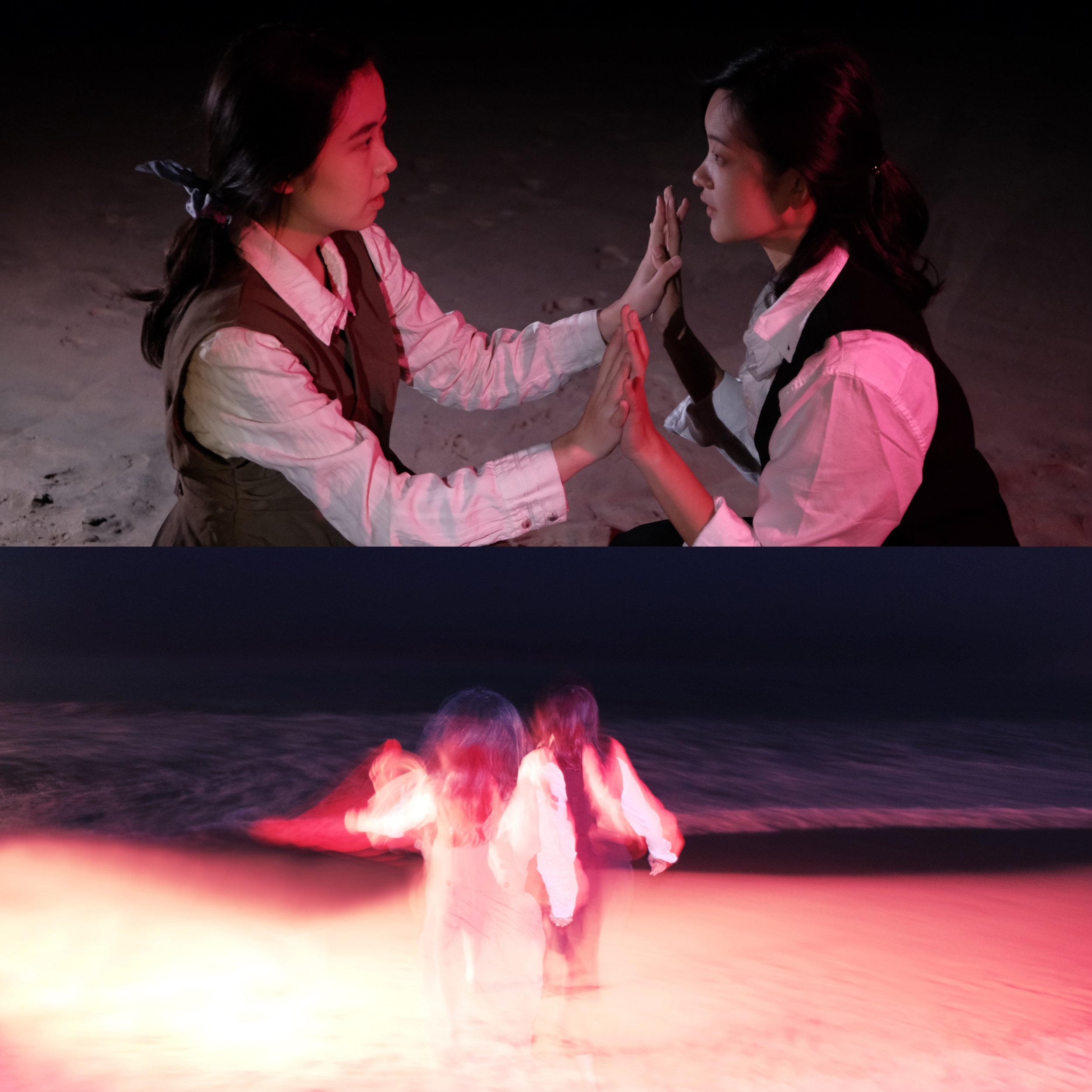
前面,
前面就是我们的新世界!
Ahead of us is our new world!
Theatre live moments
2022.12.3.-12.4.
USC Joyce J. Cammilleri Hall (BCI),
Los Angeles
USC Gate Five Theatre
Poster & photo credits: Yidan Zheng & Xuan Luo, Wei Huang, Ziyan Zhou
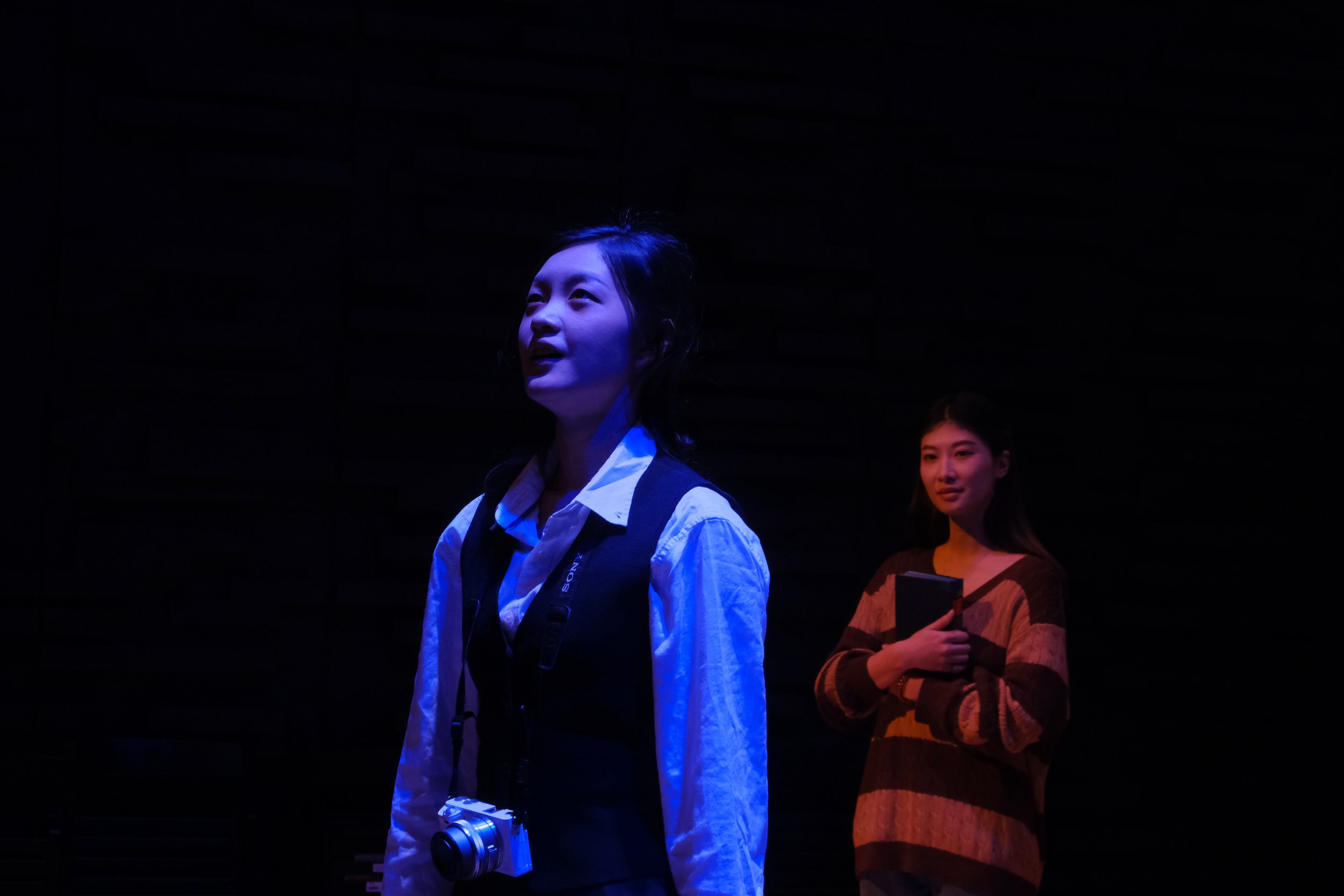
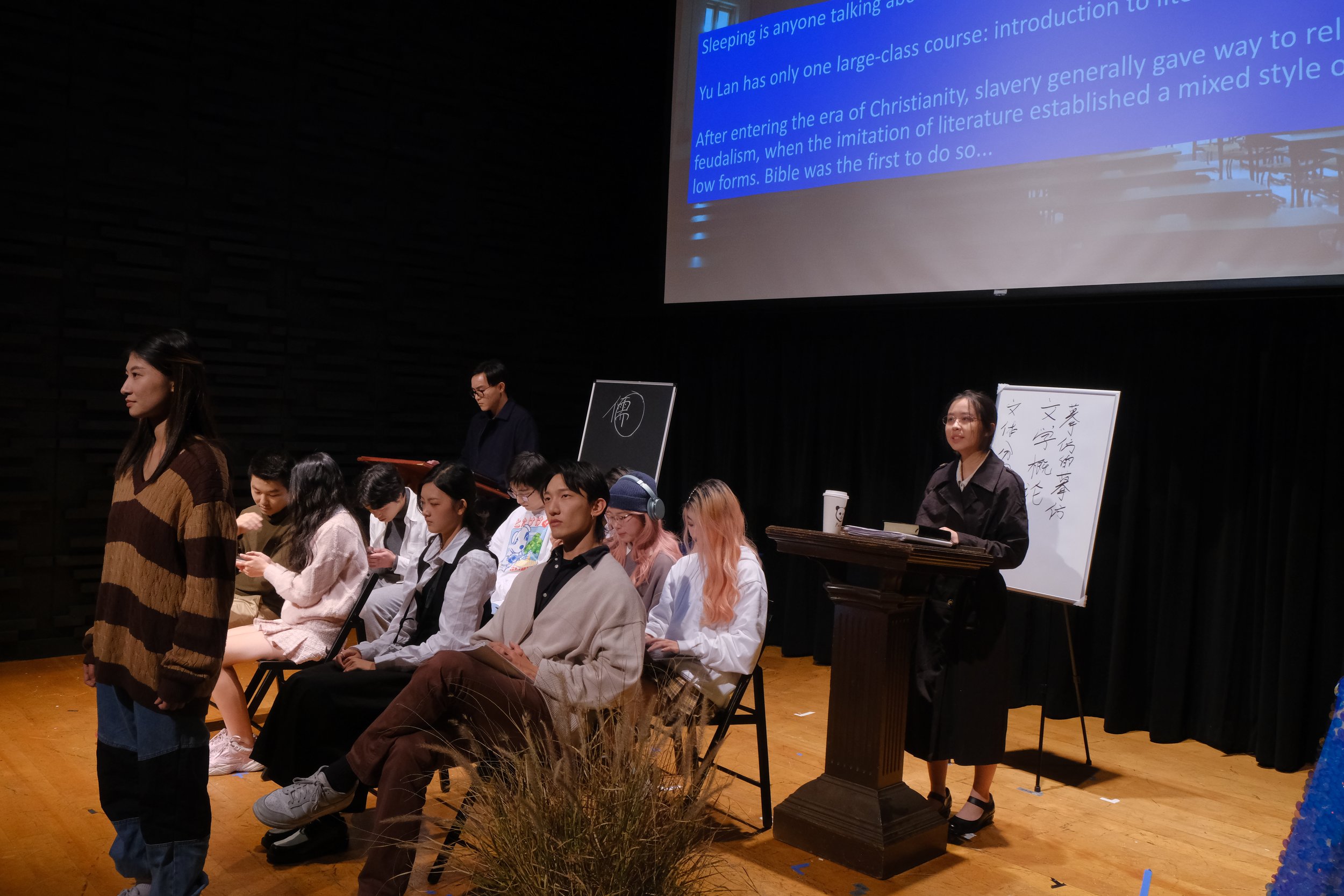
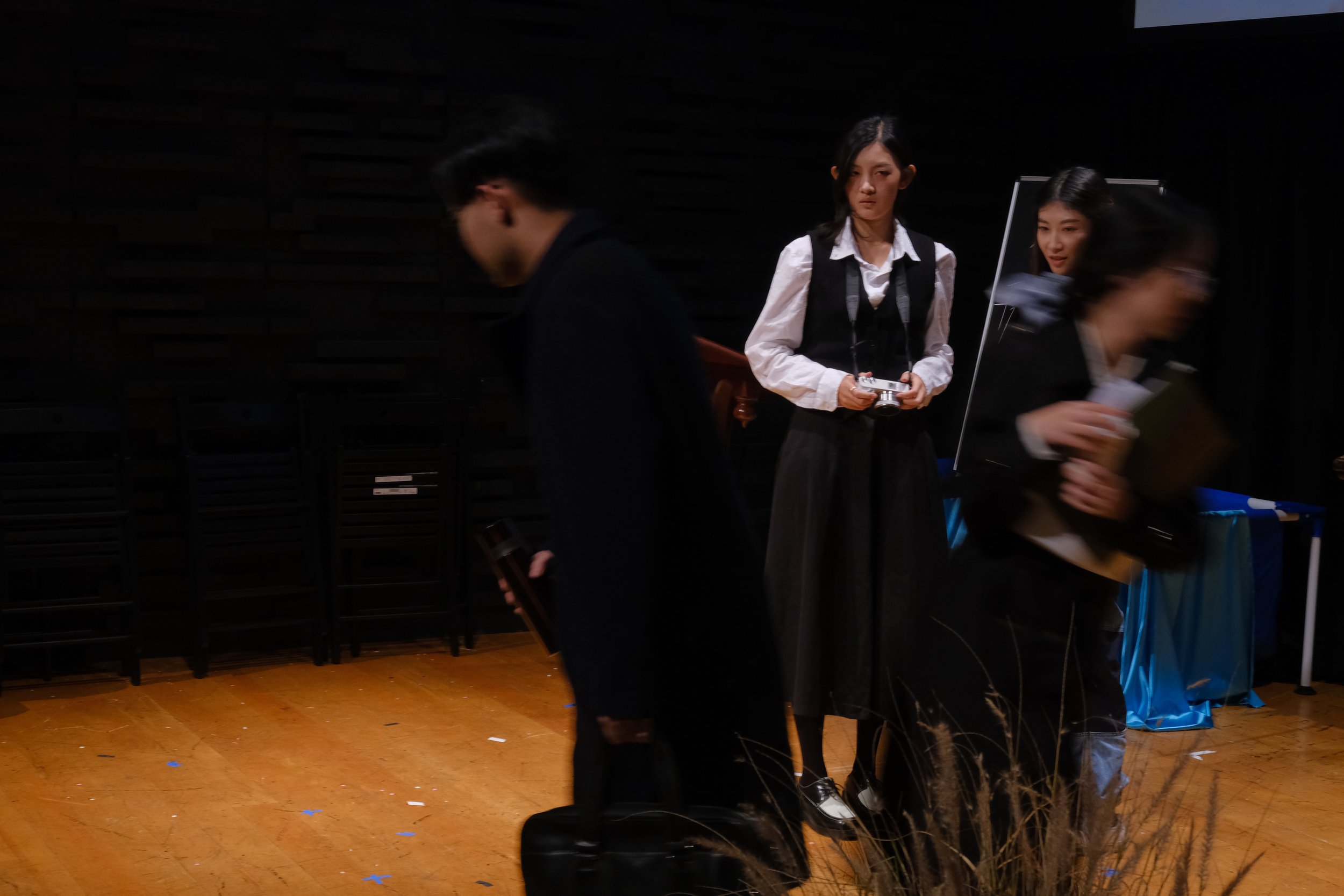
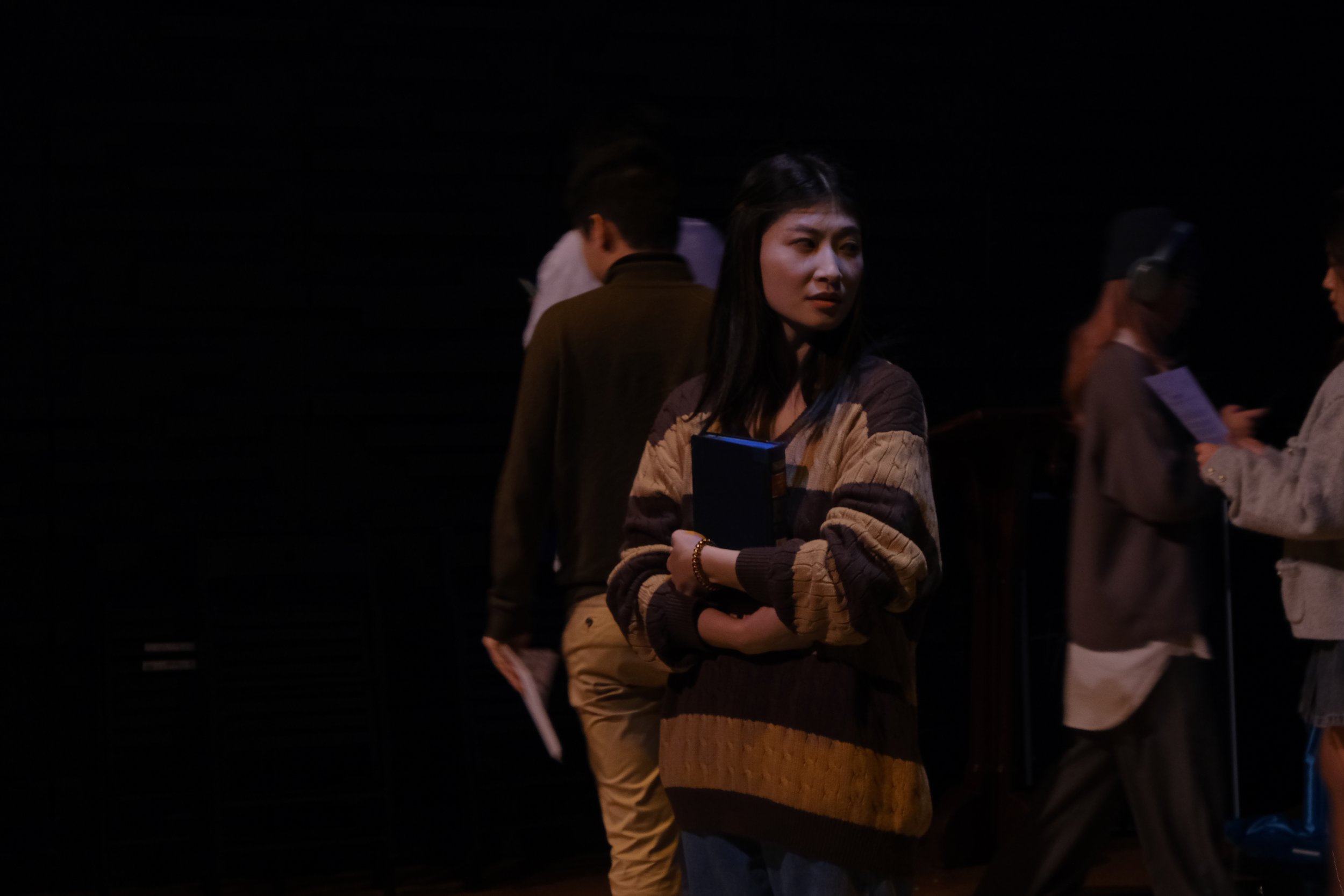
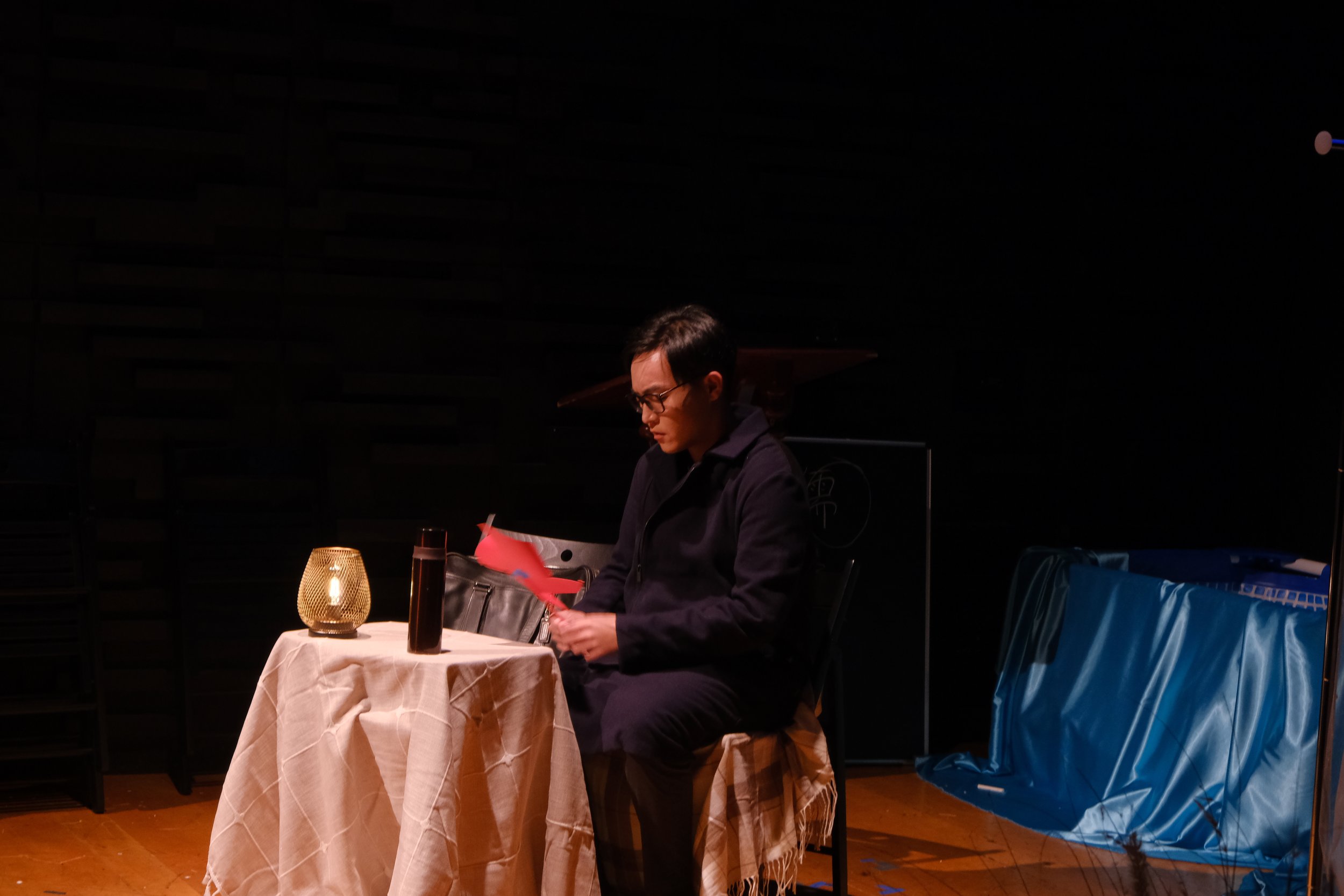
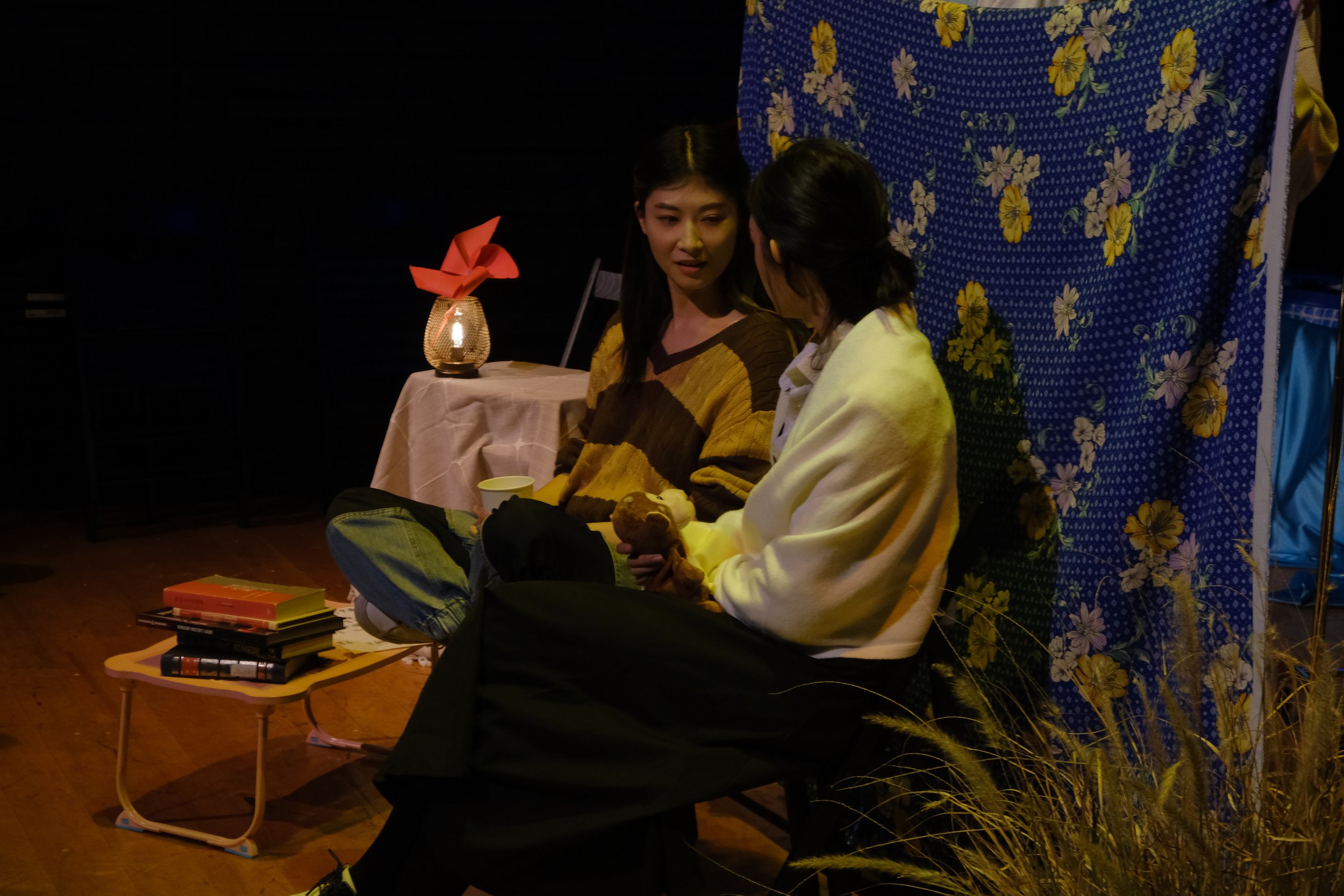
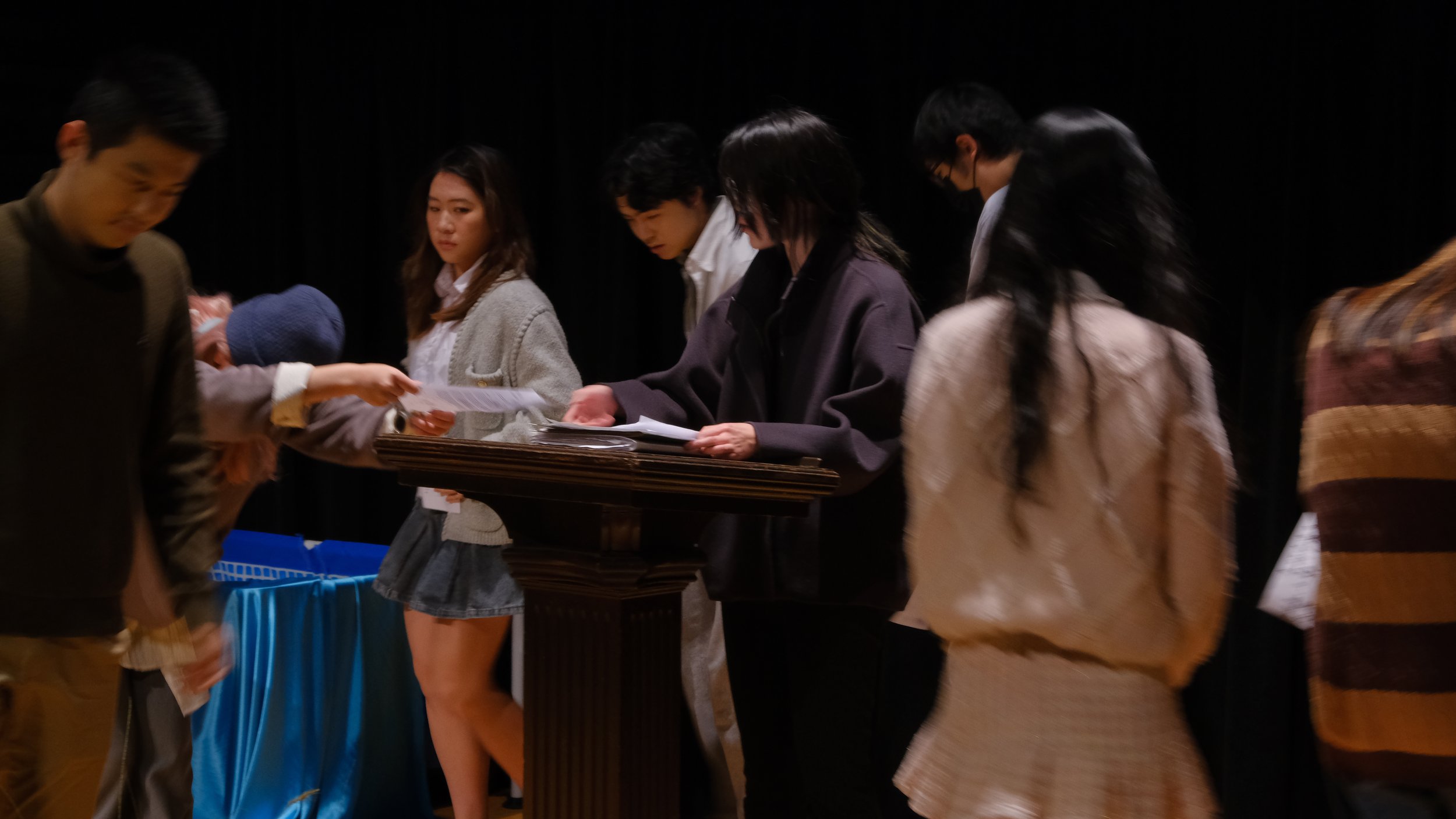
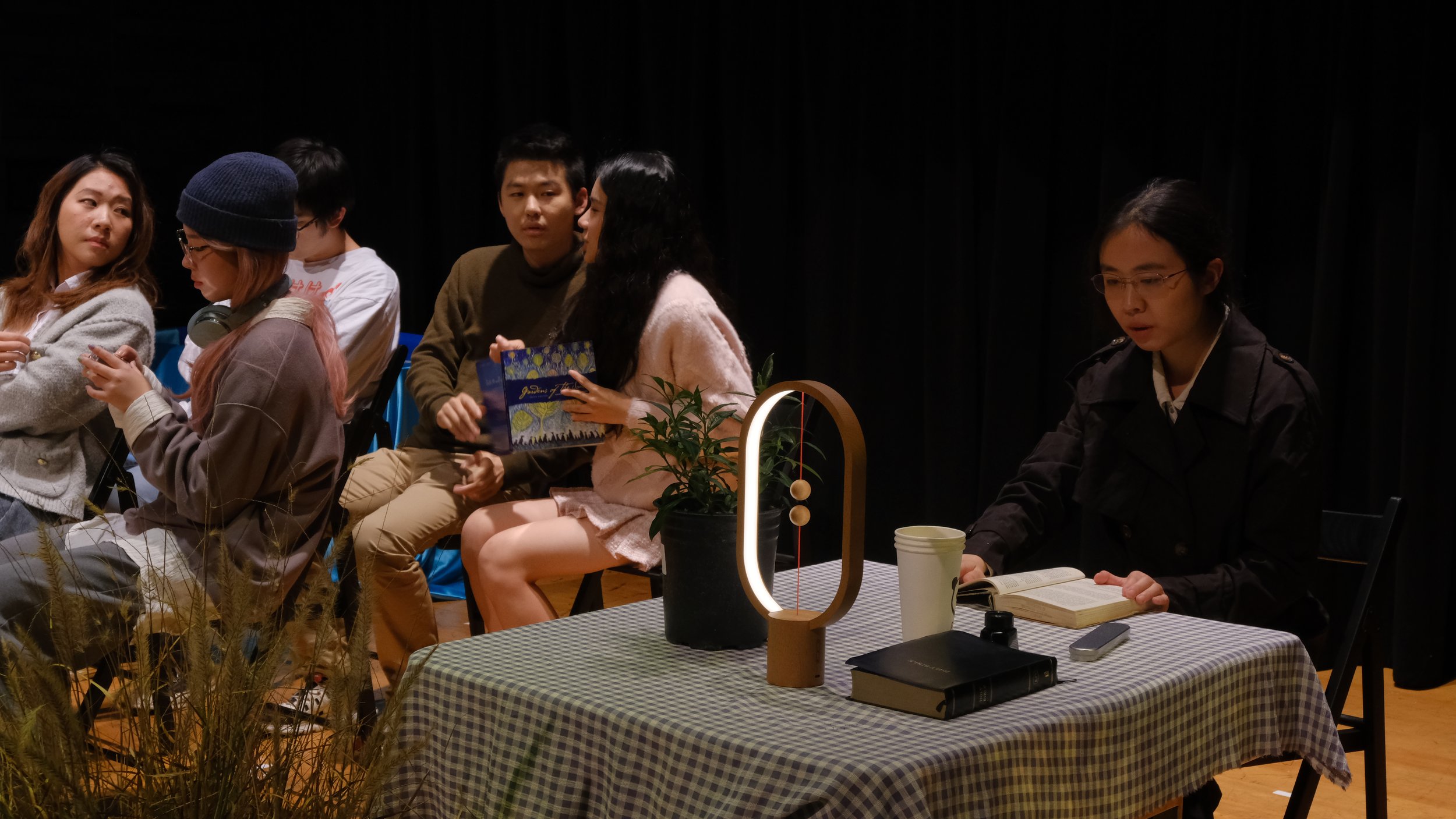
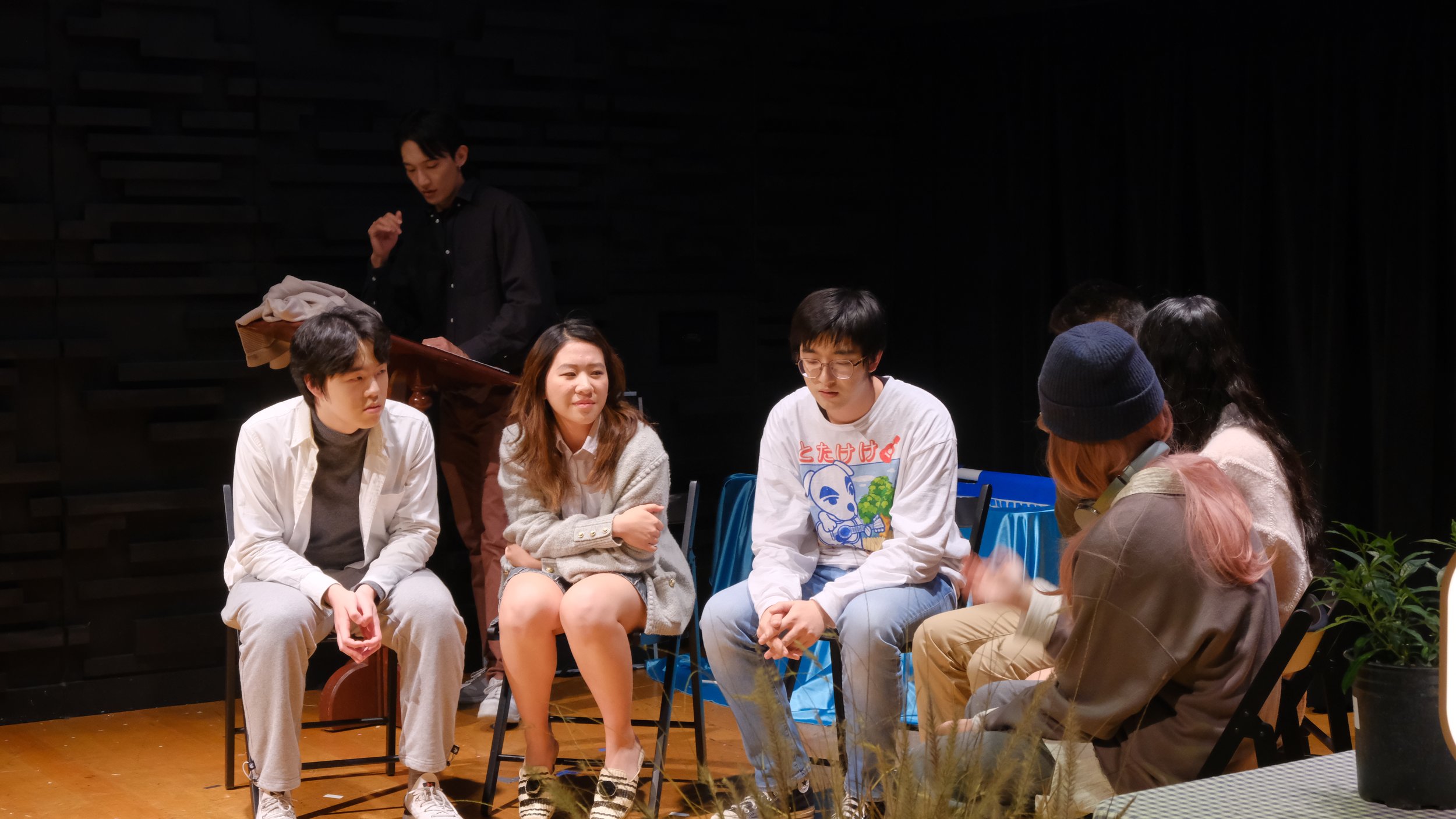
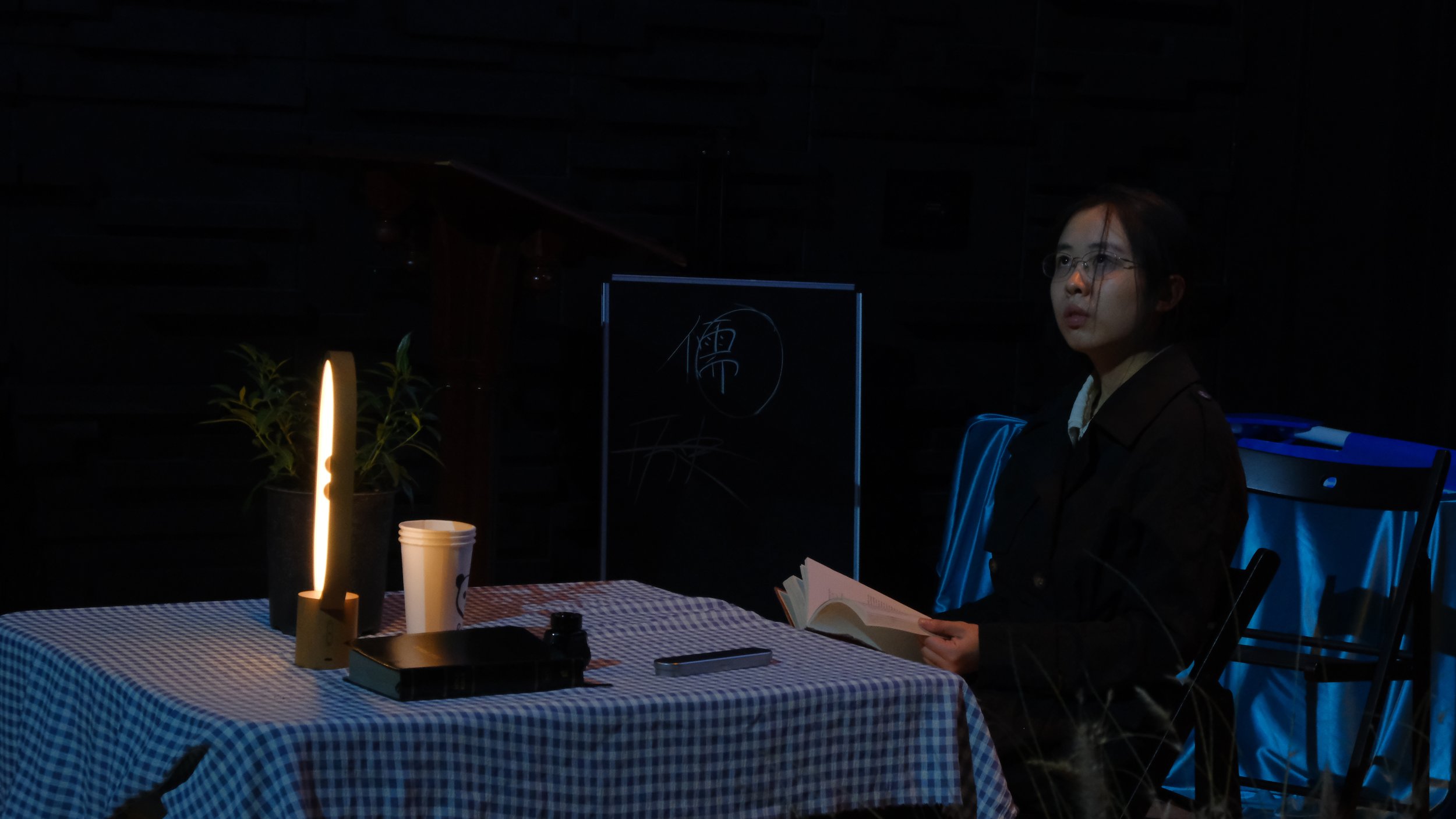
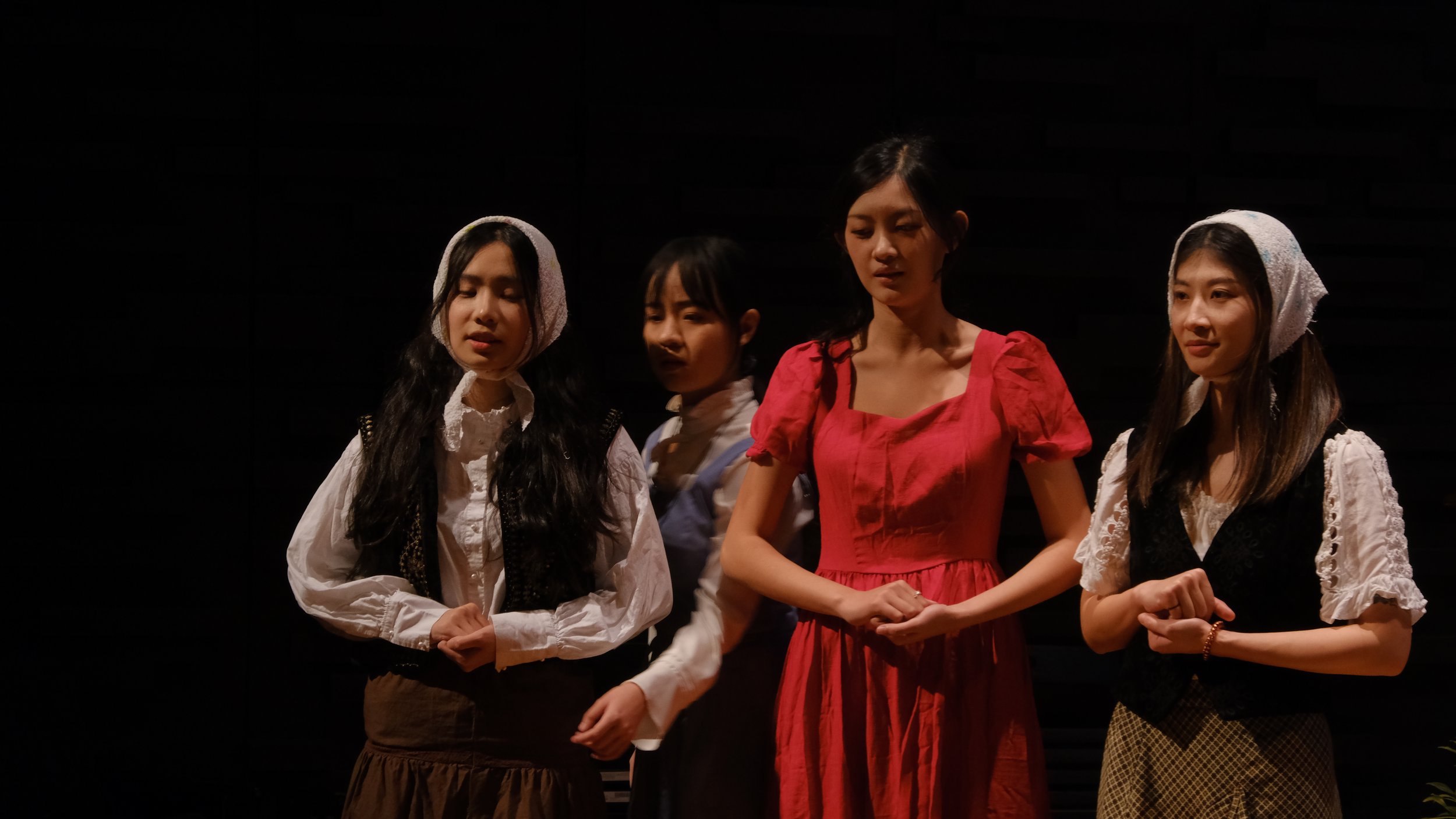
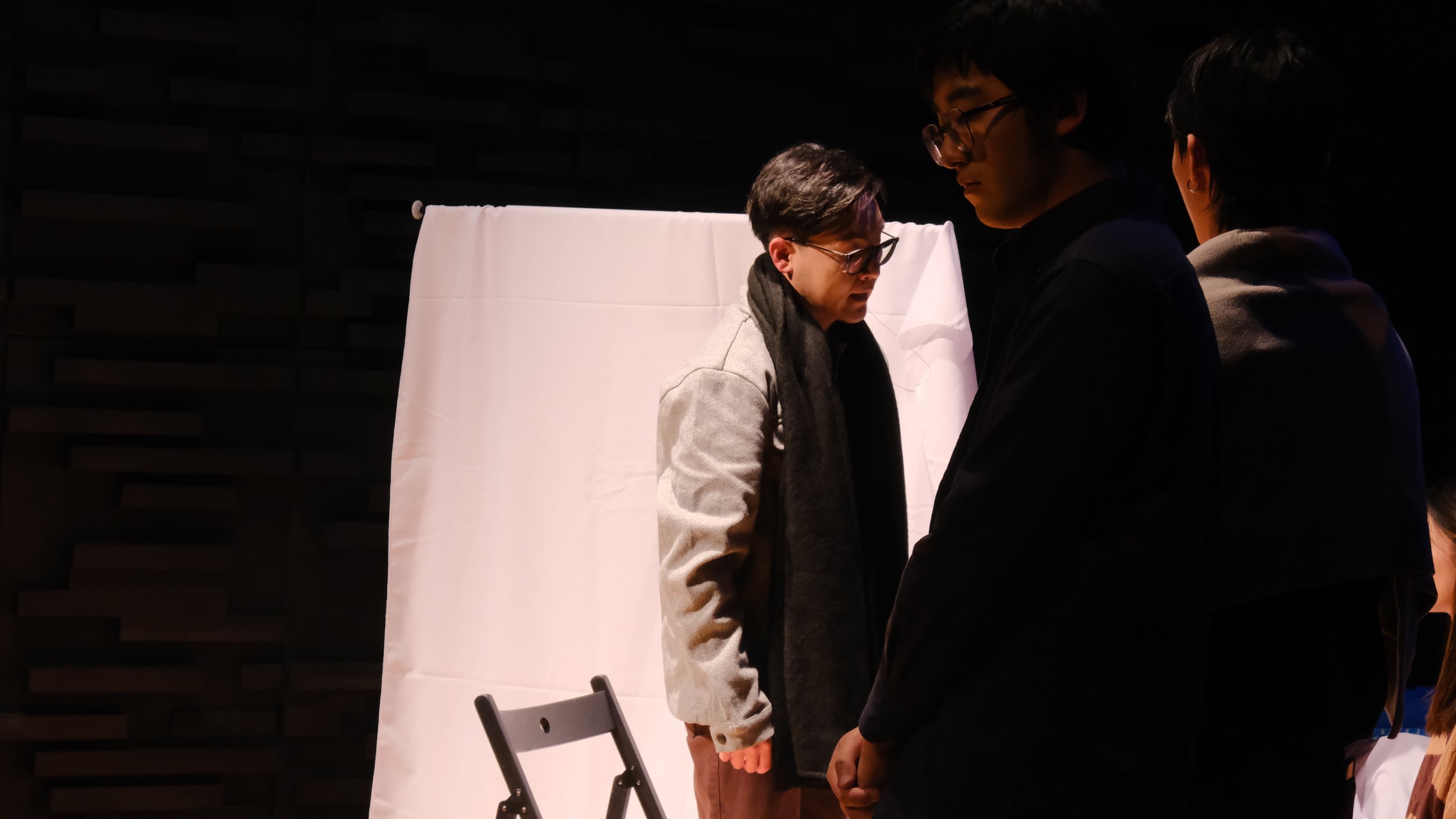
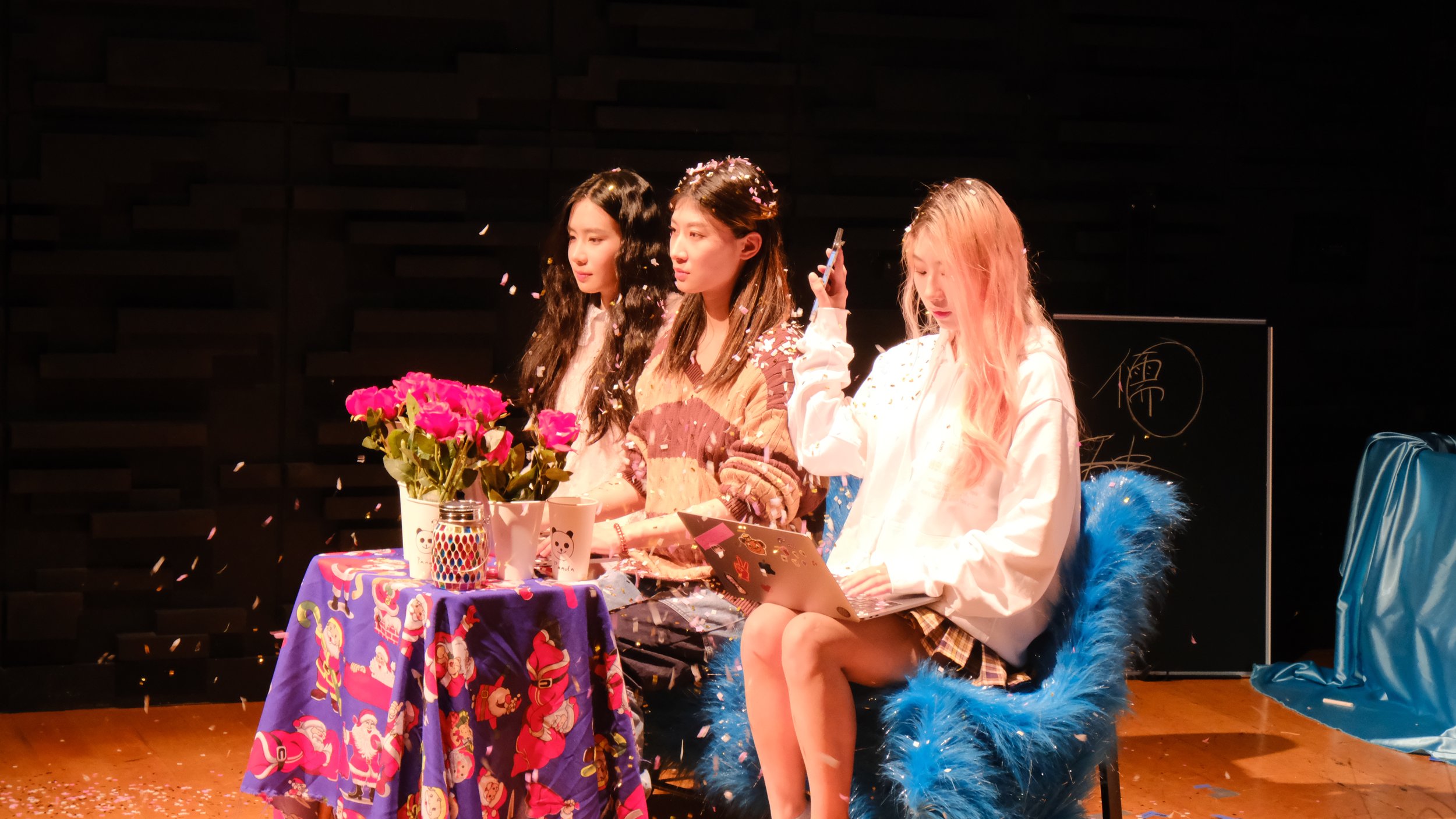
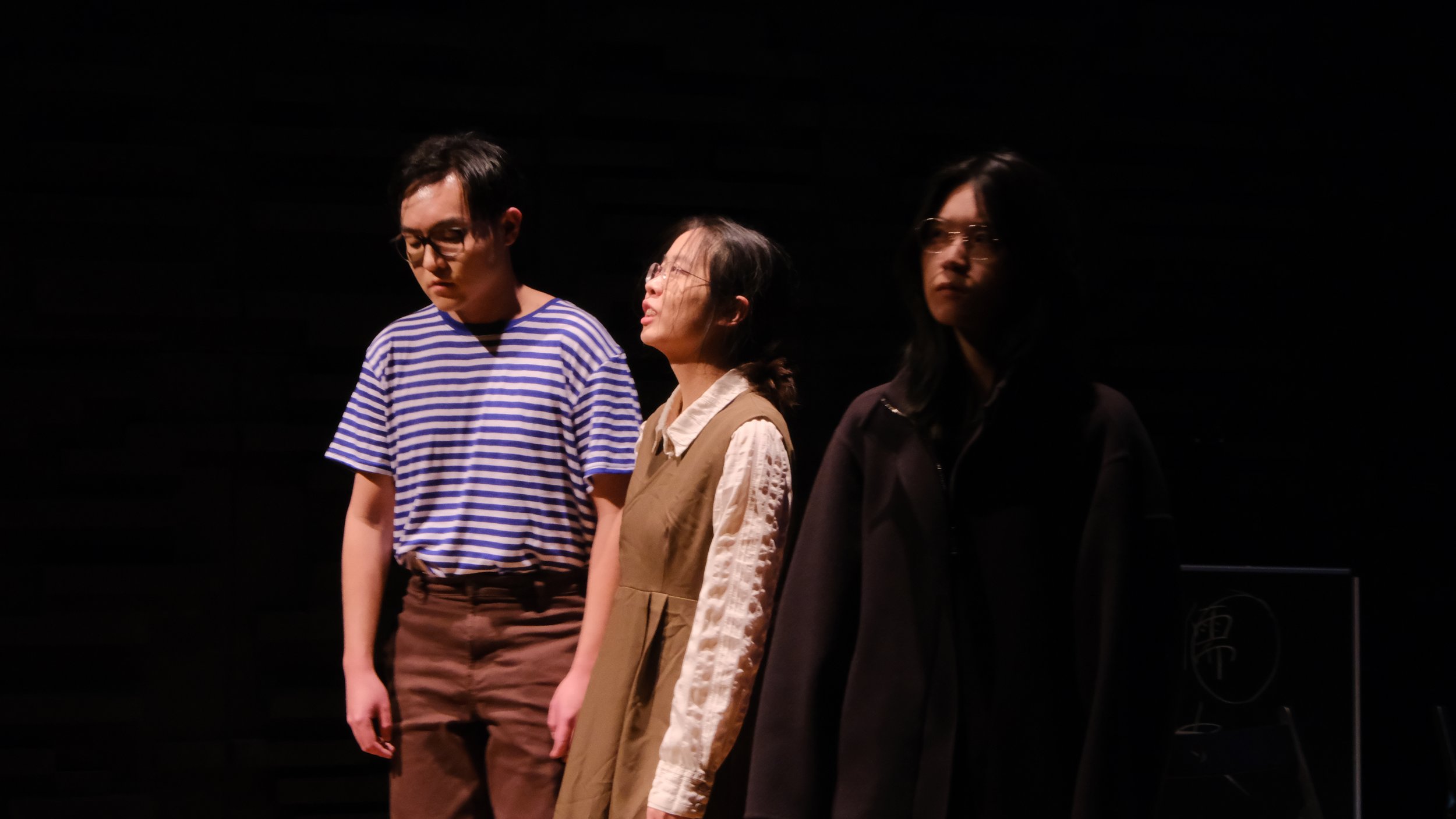


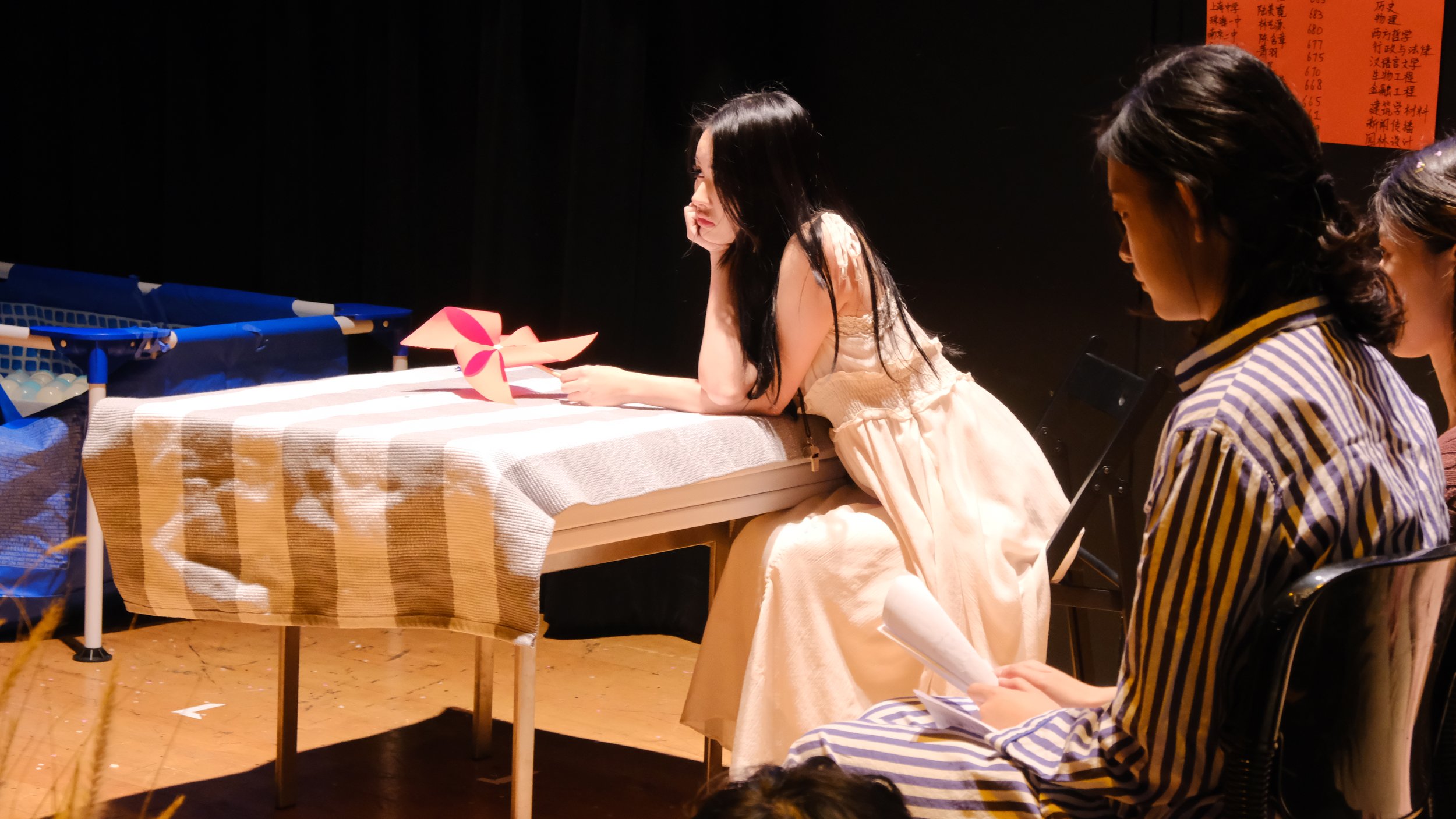
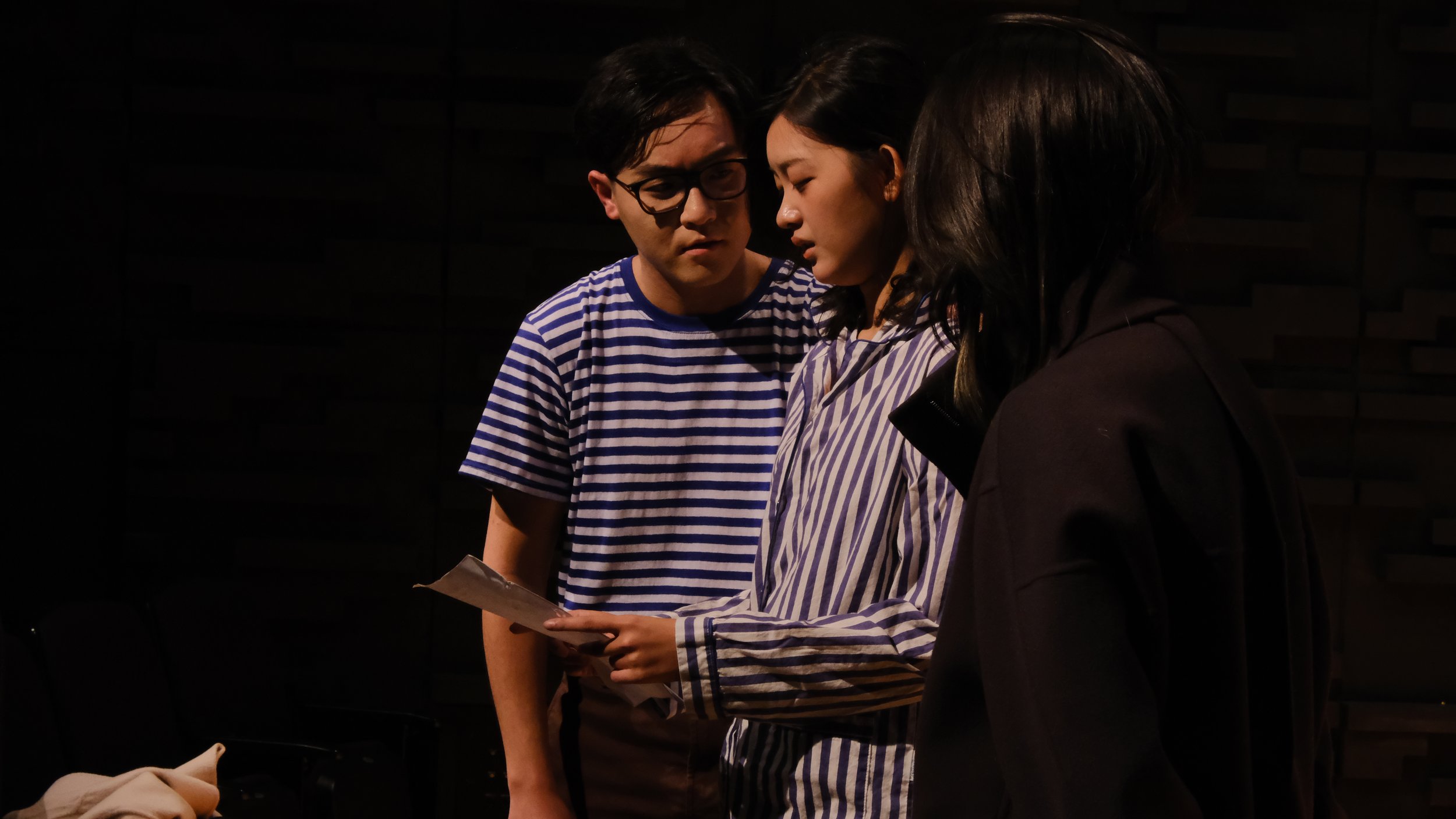
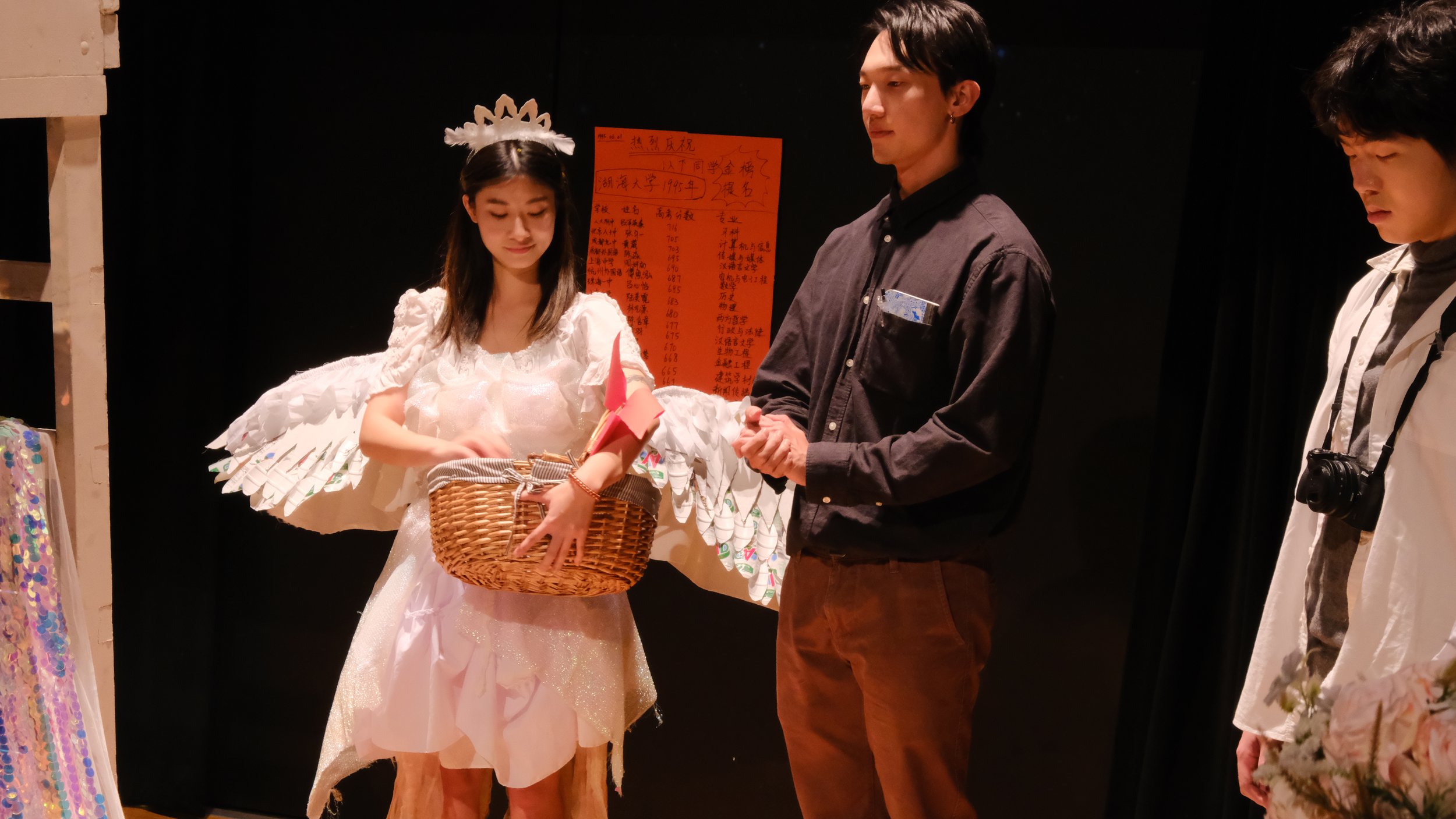
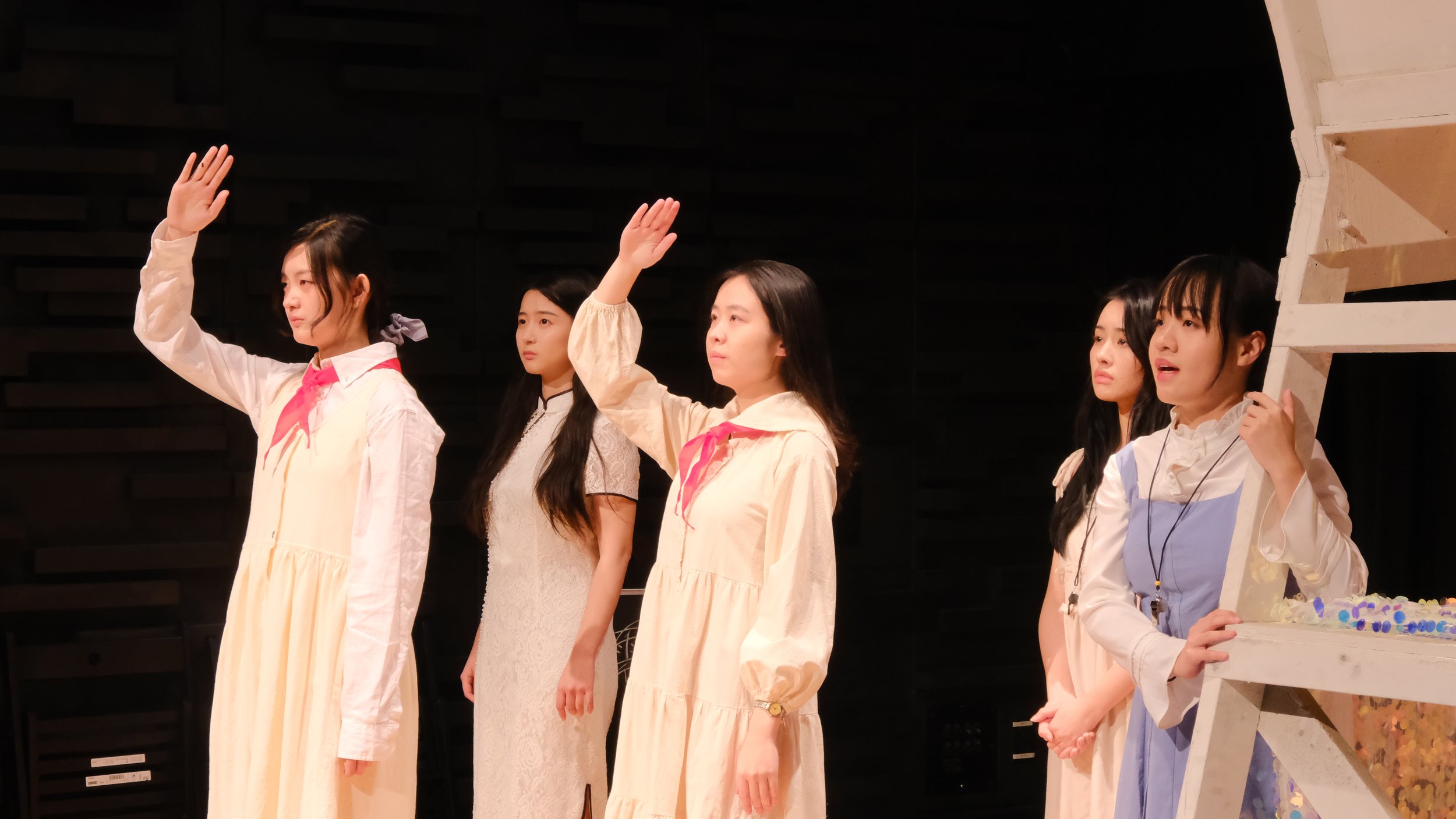
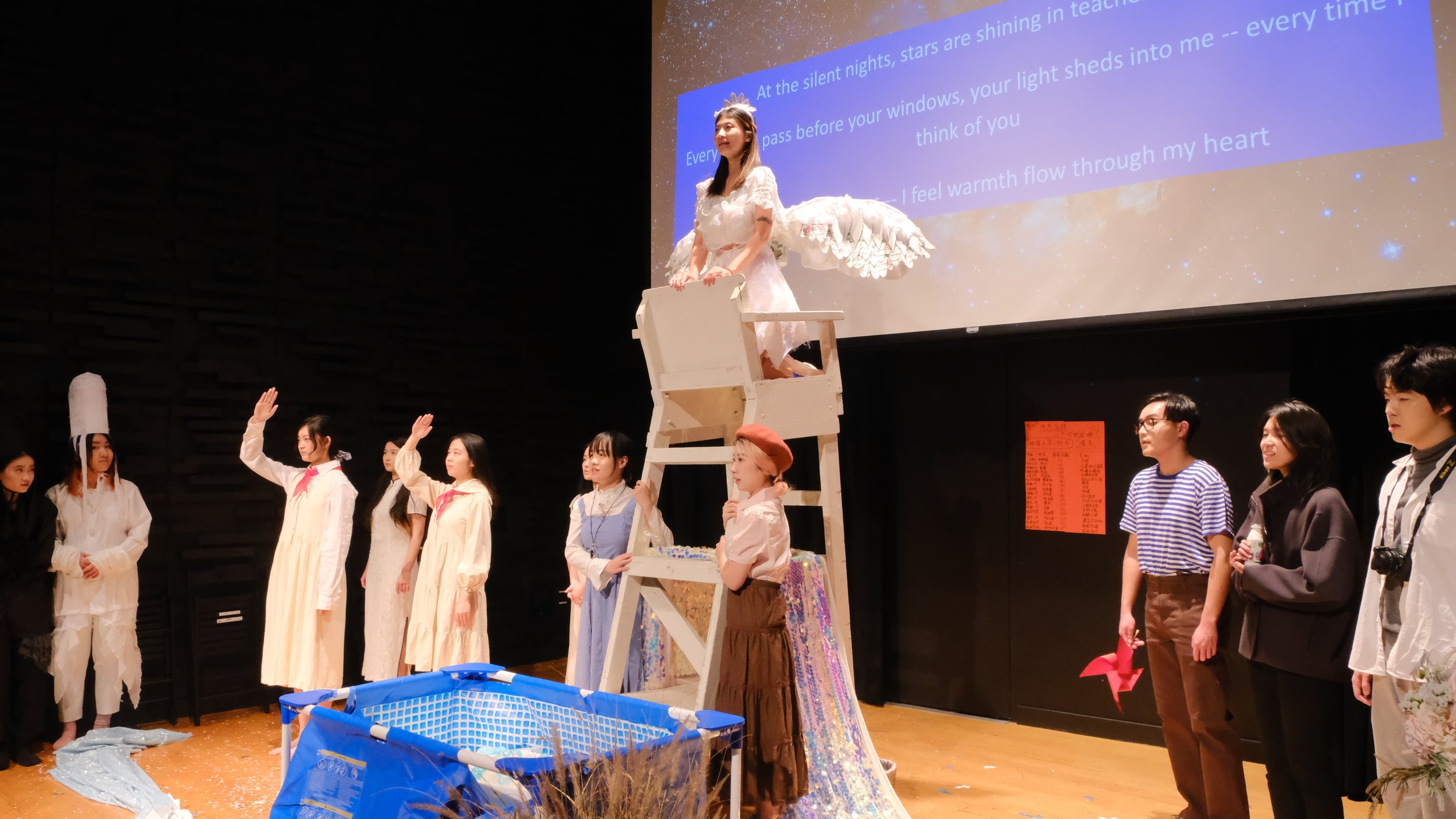
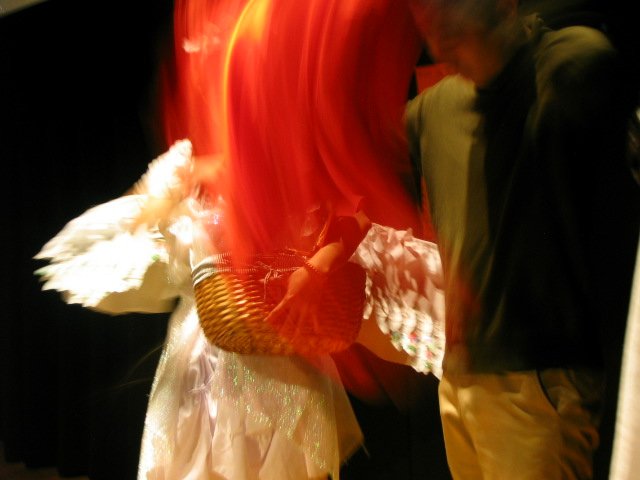
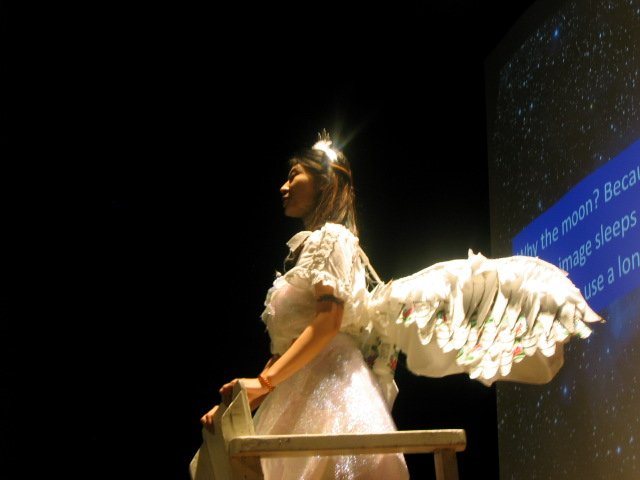

致启迪过我们的老师们
Dedicated to my professors
